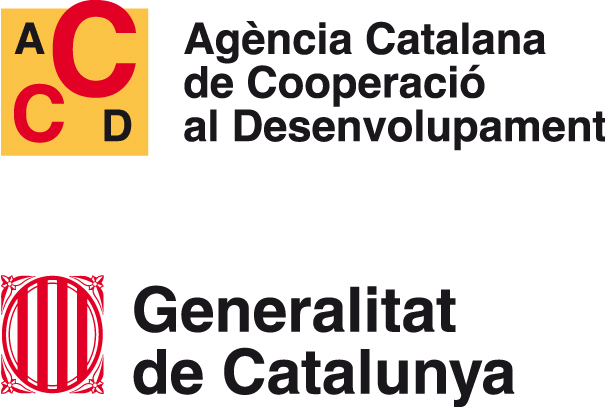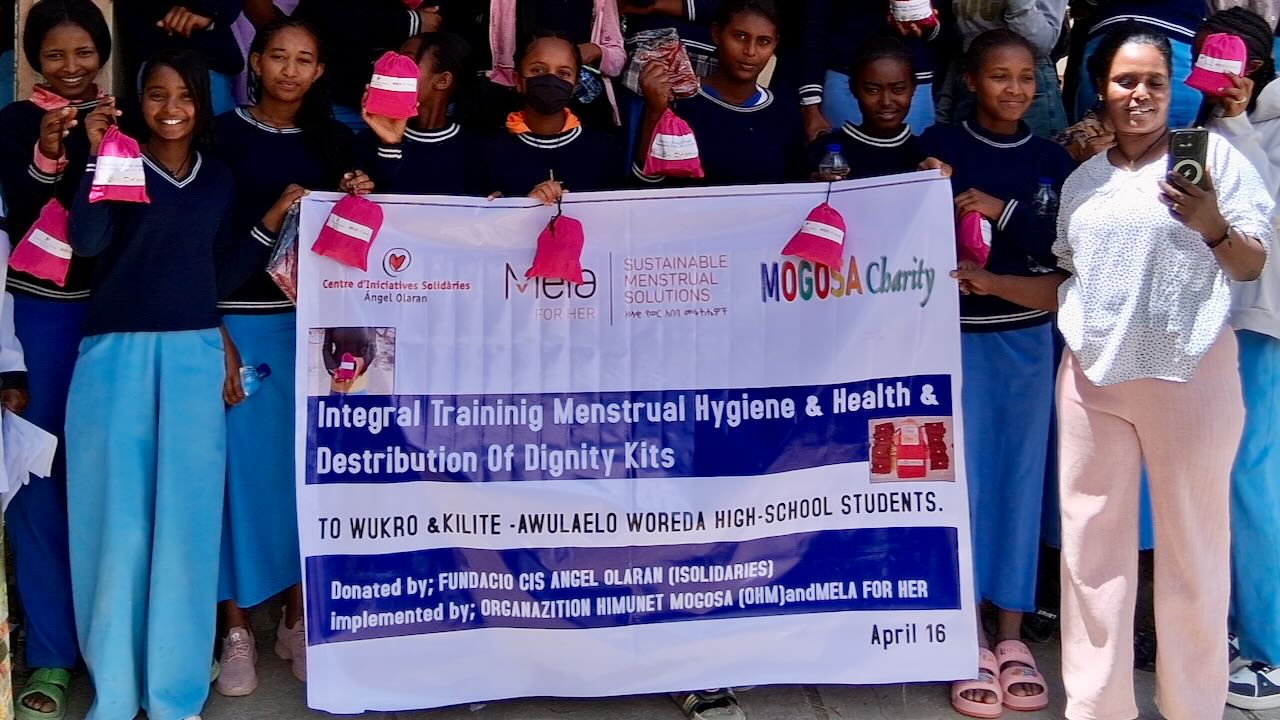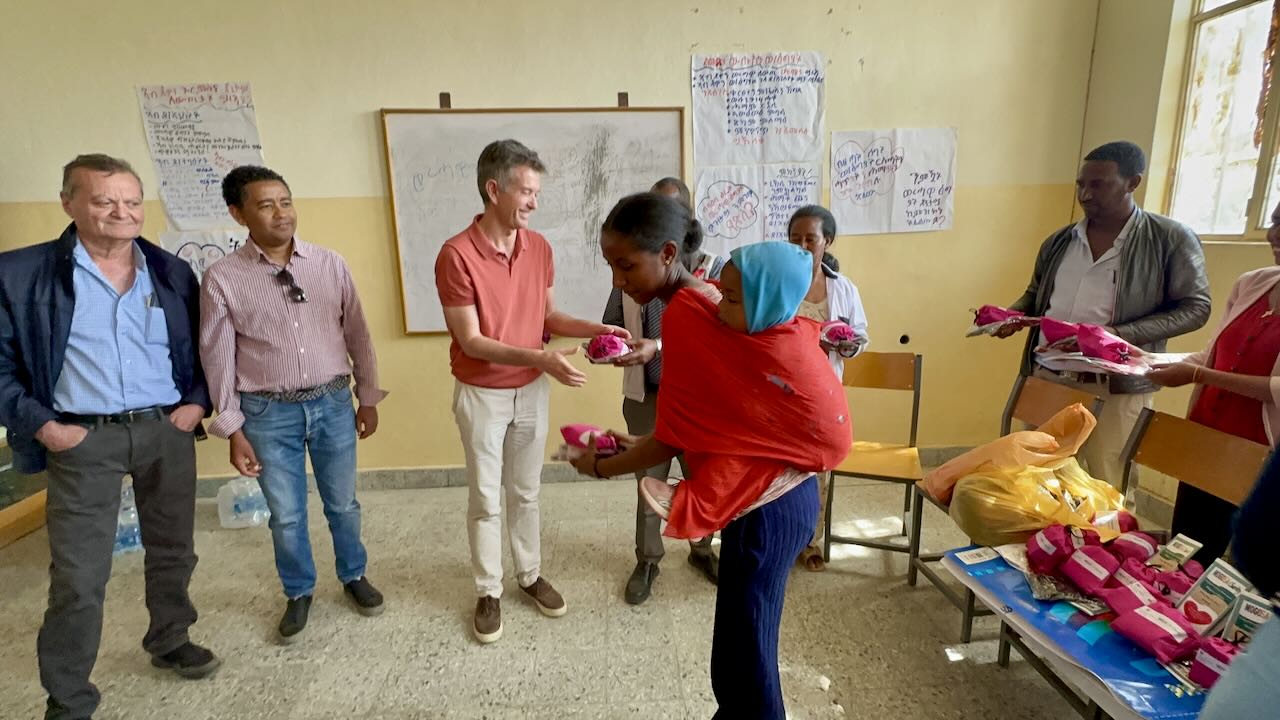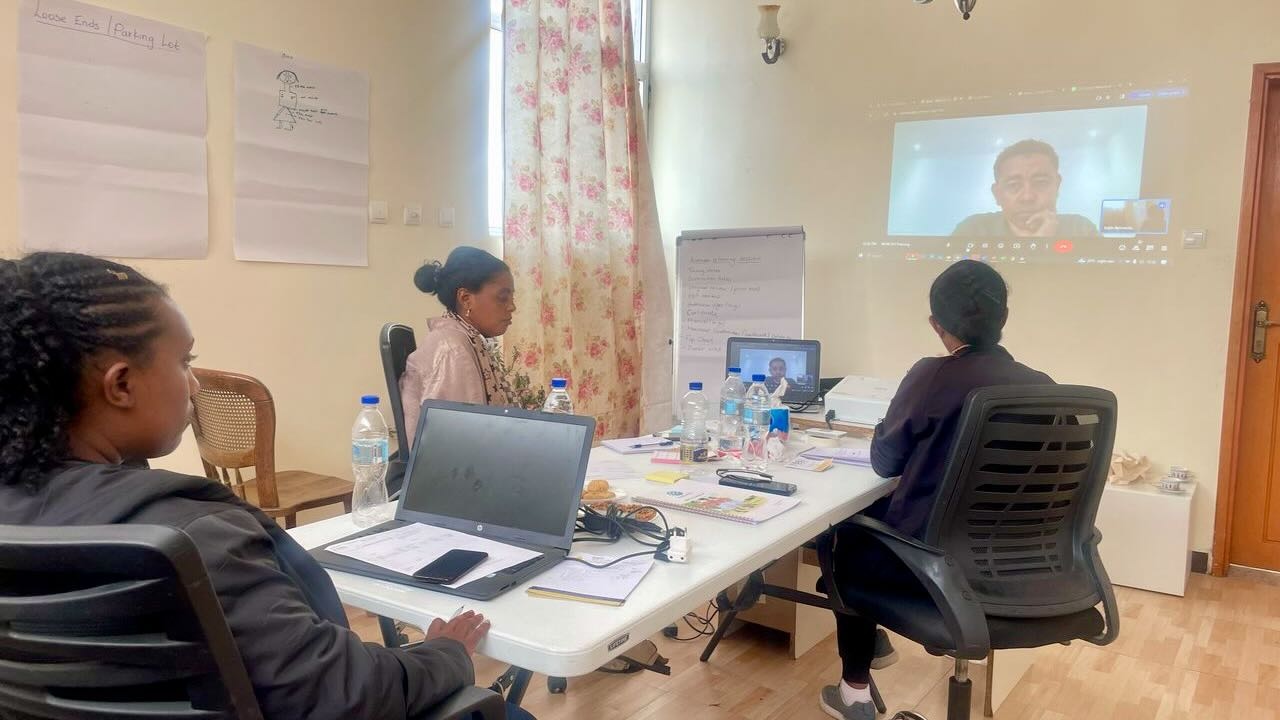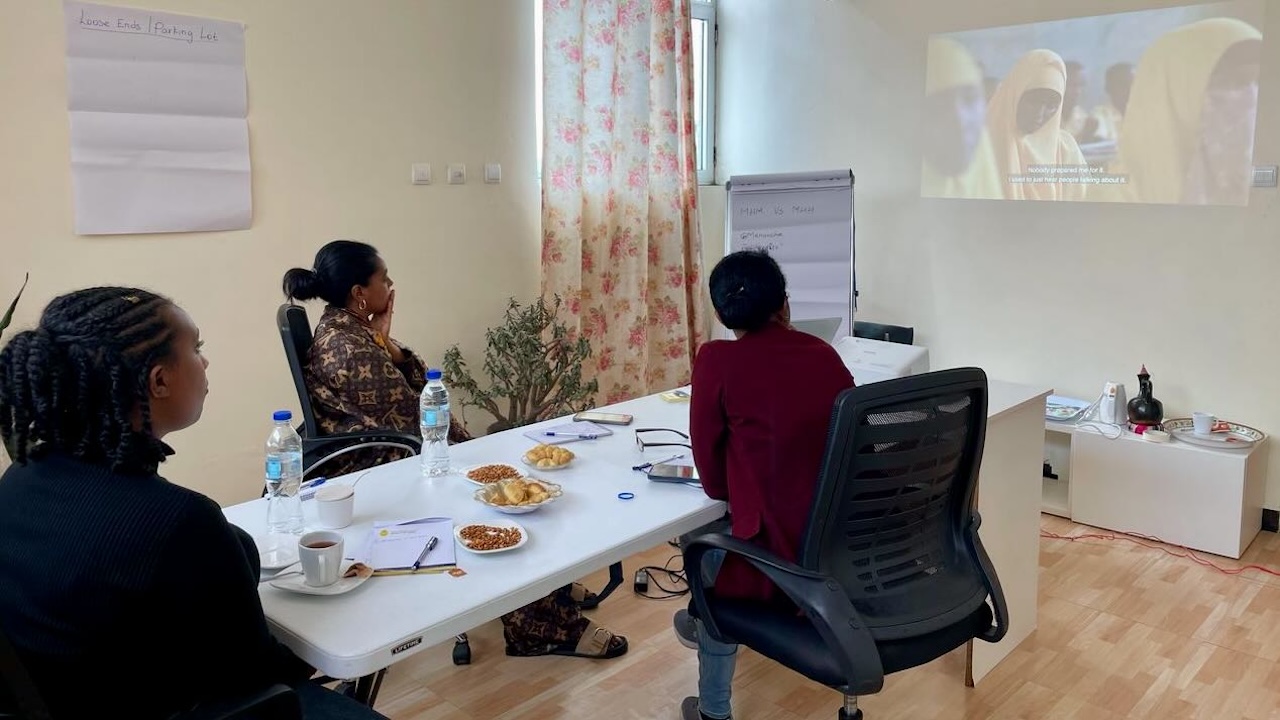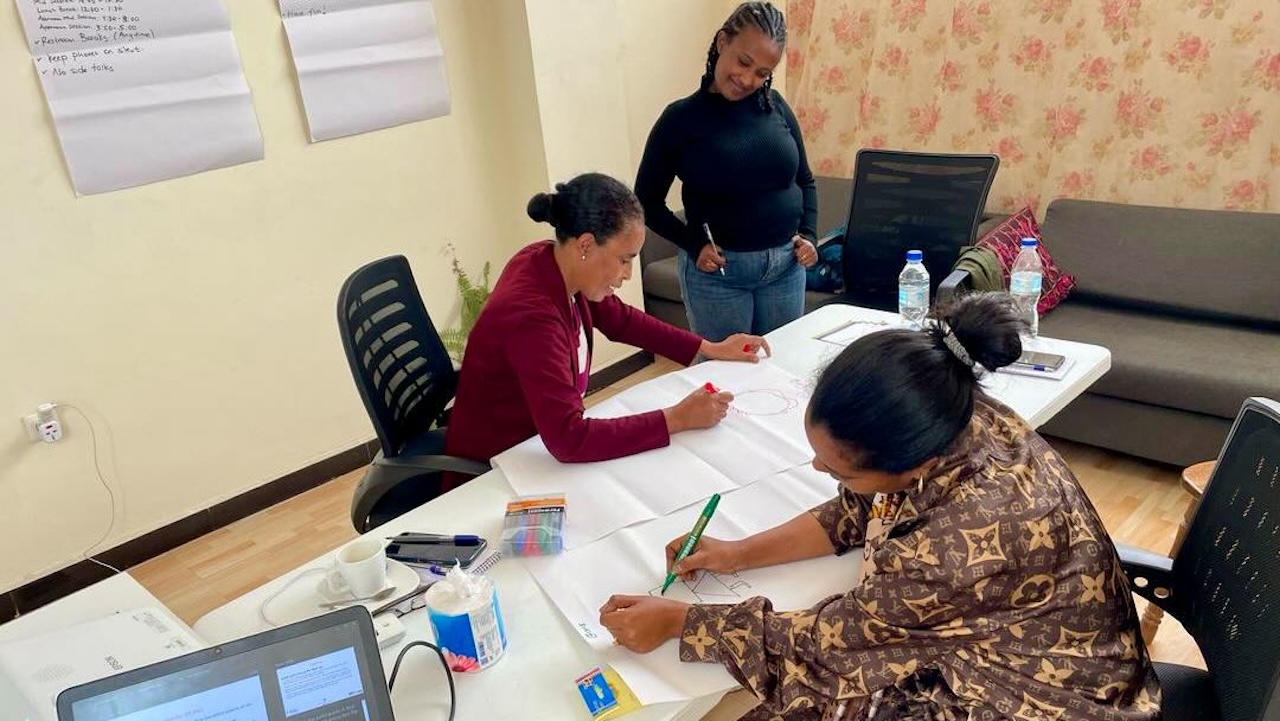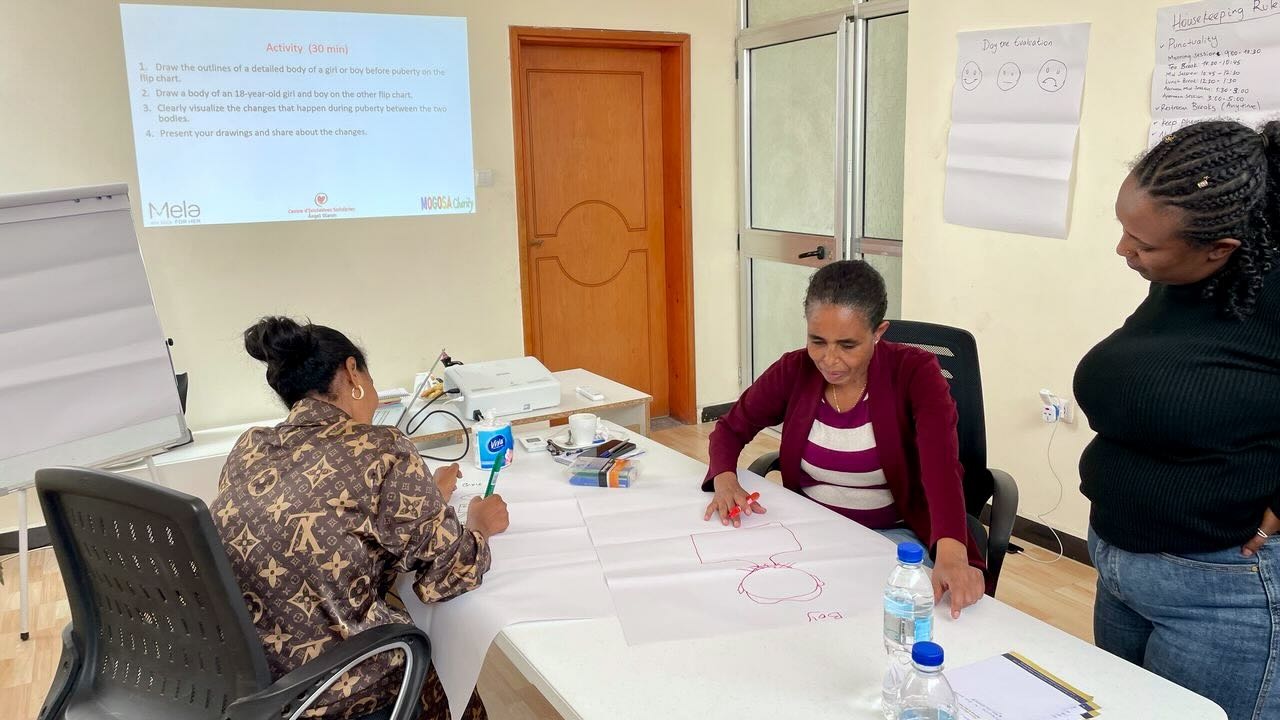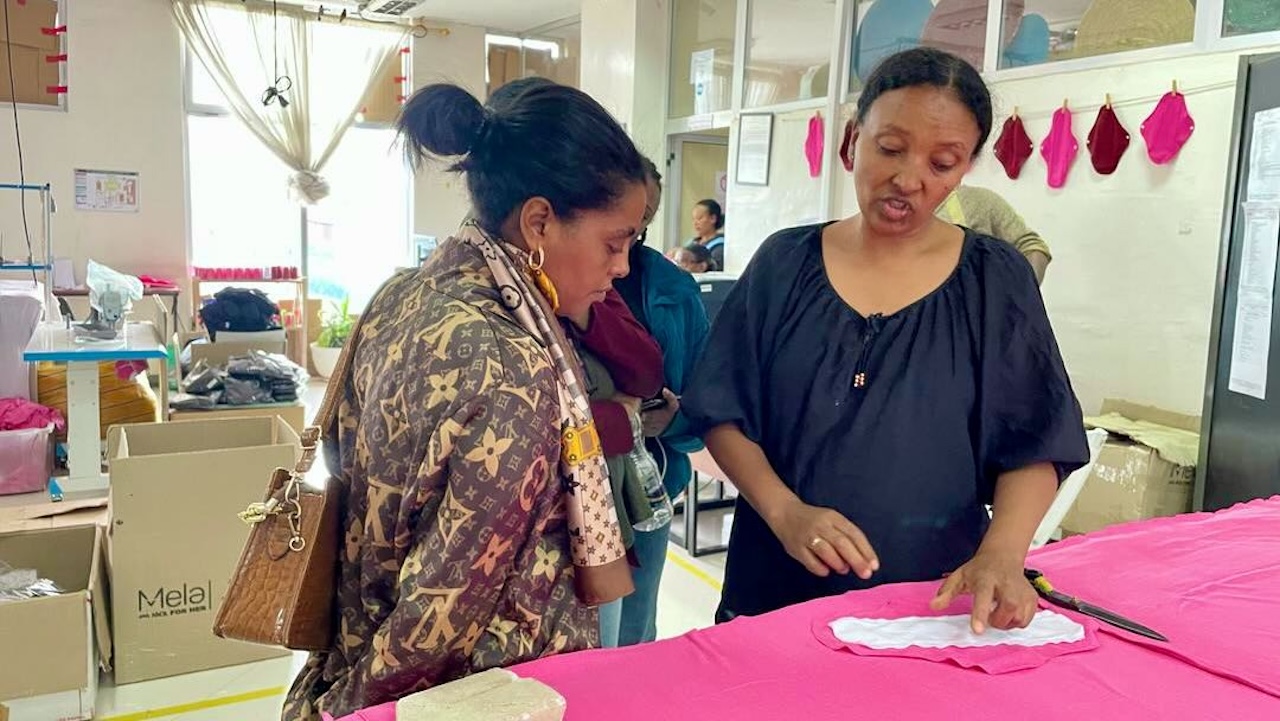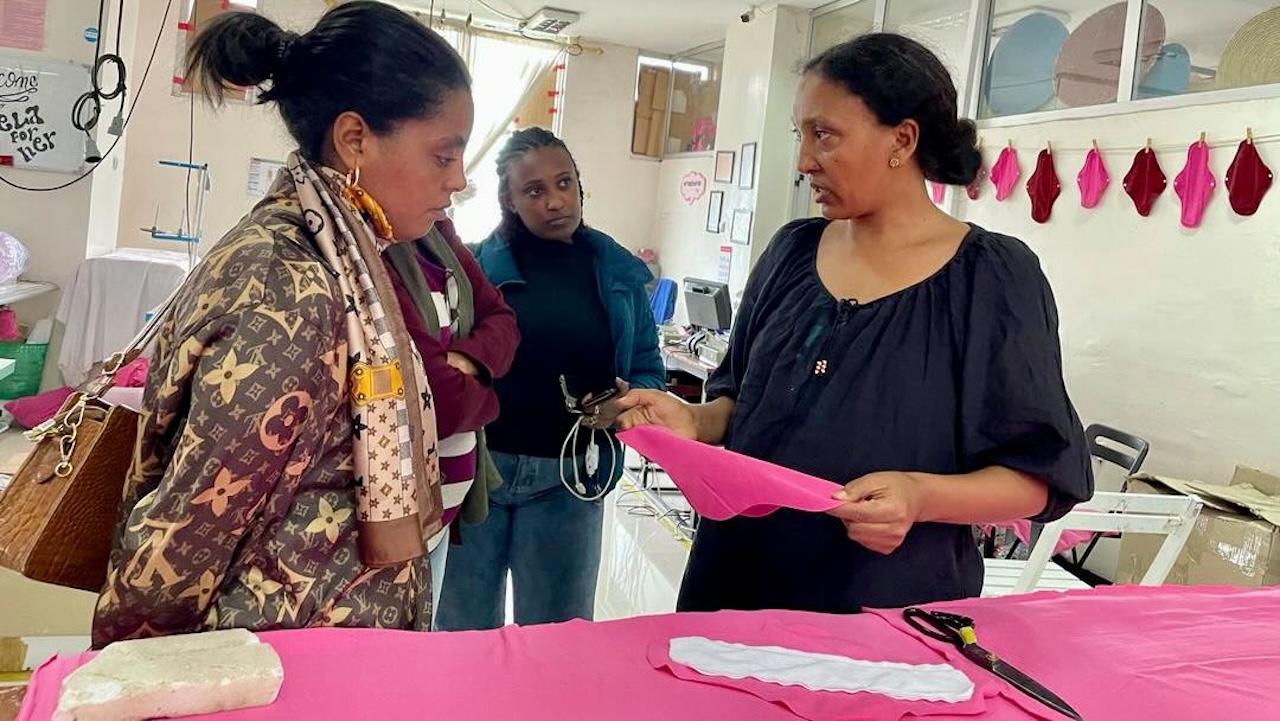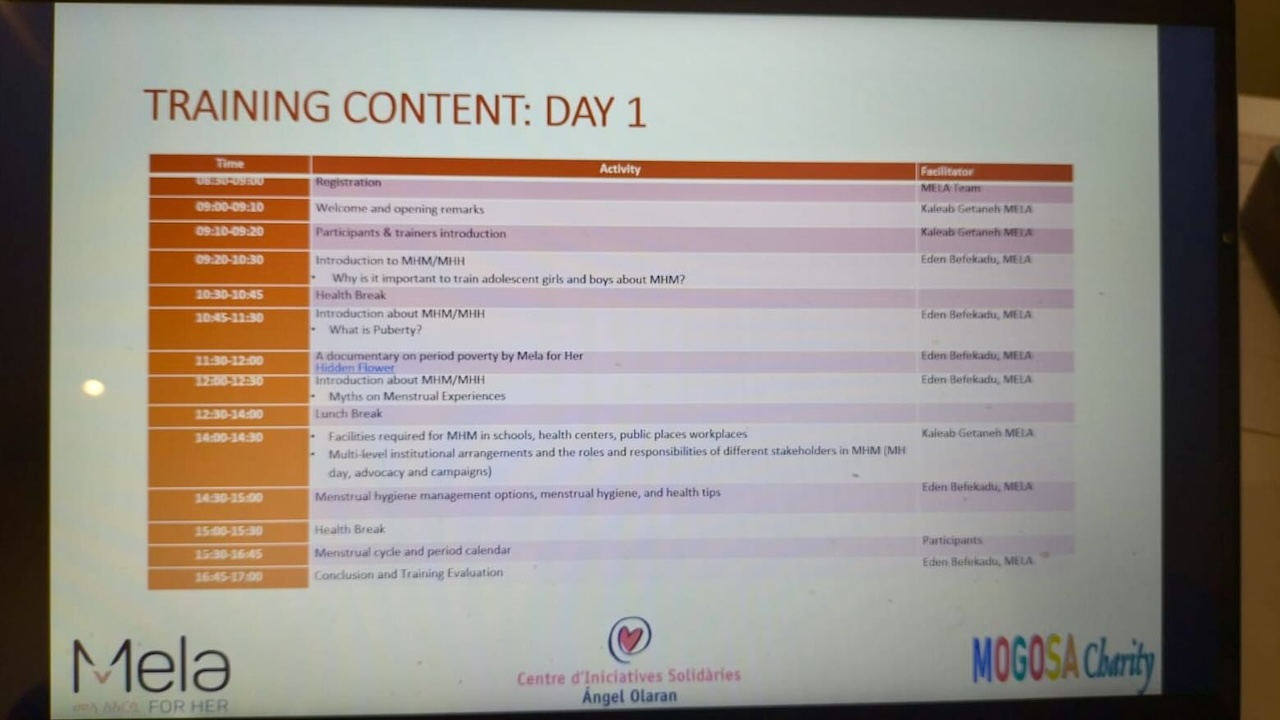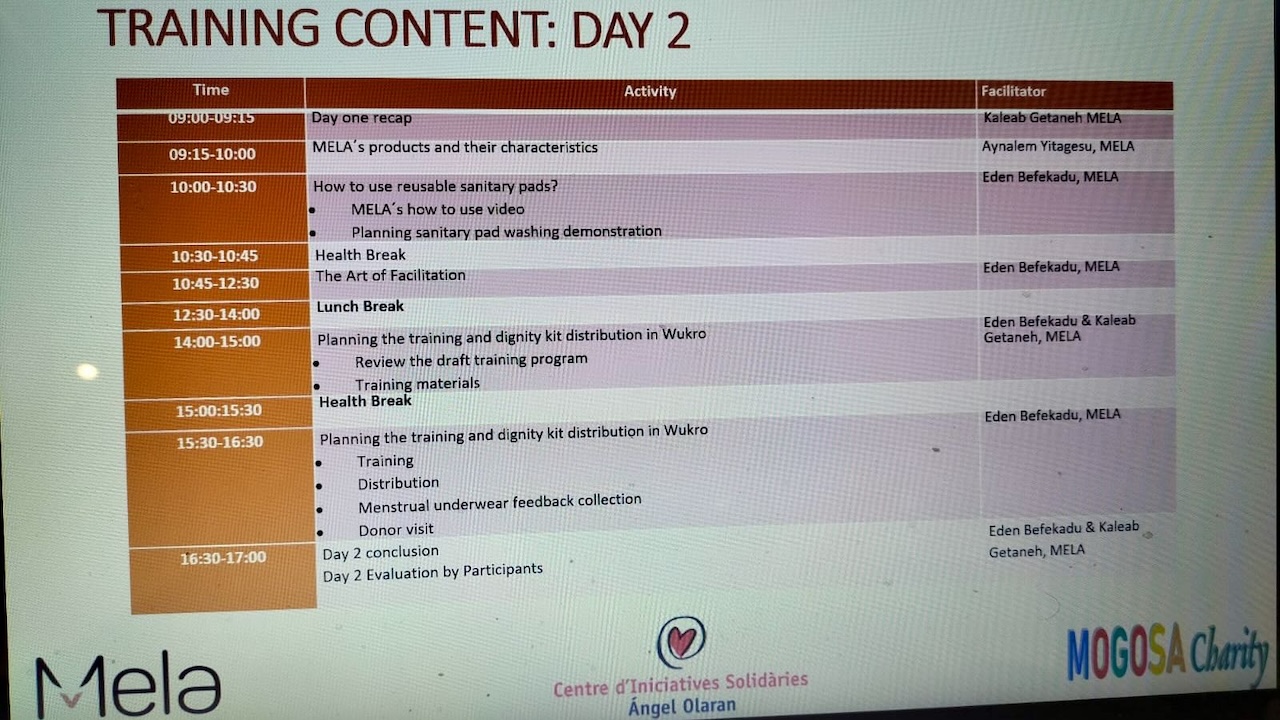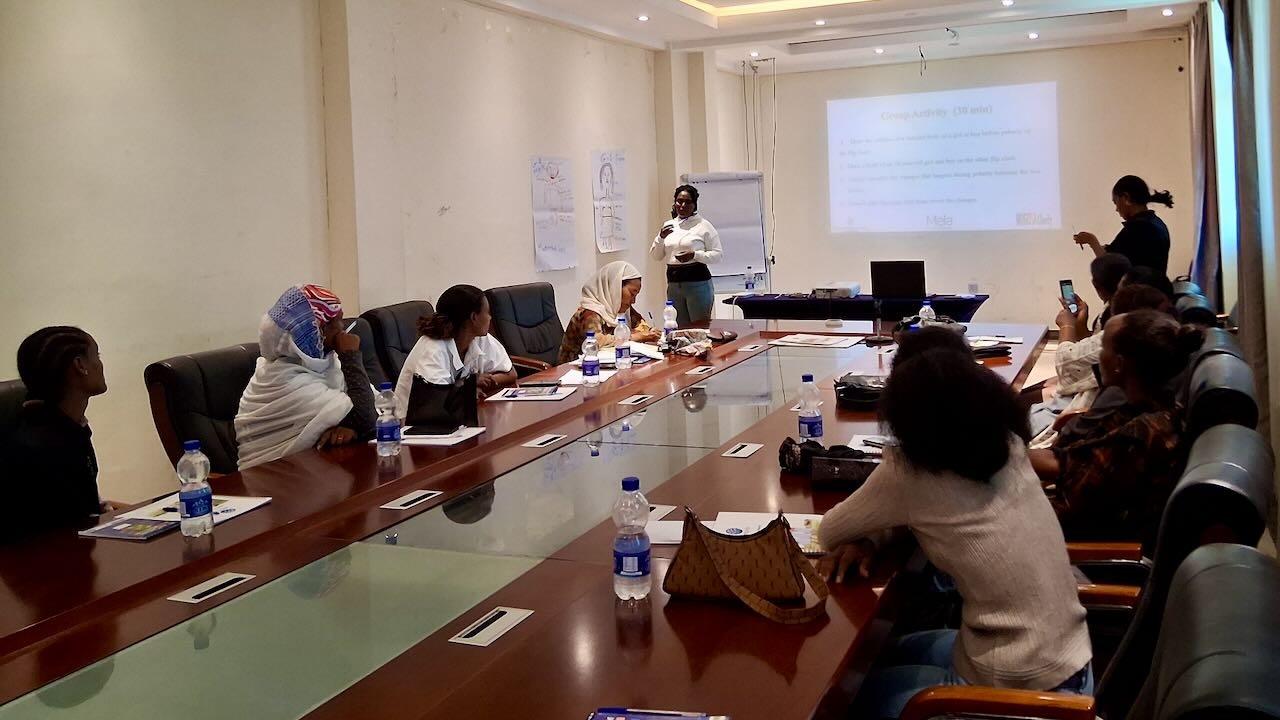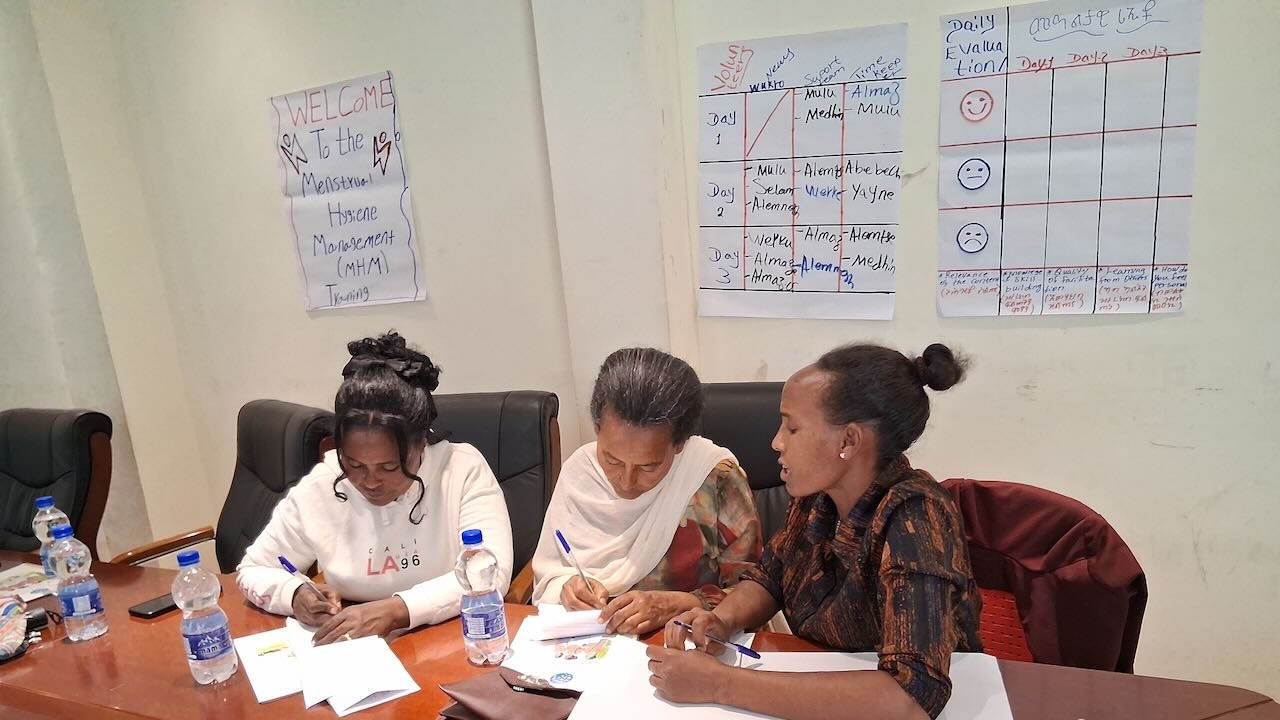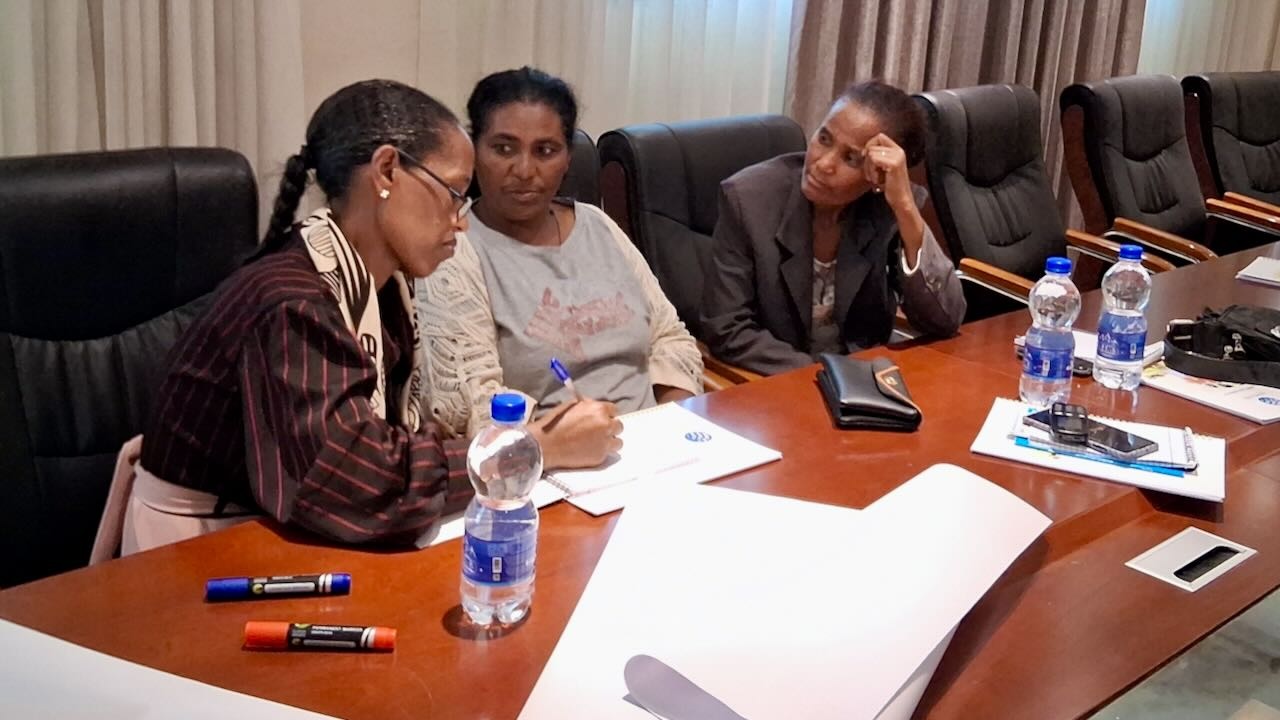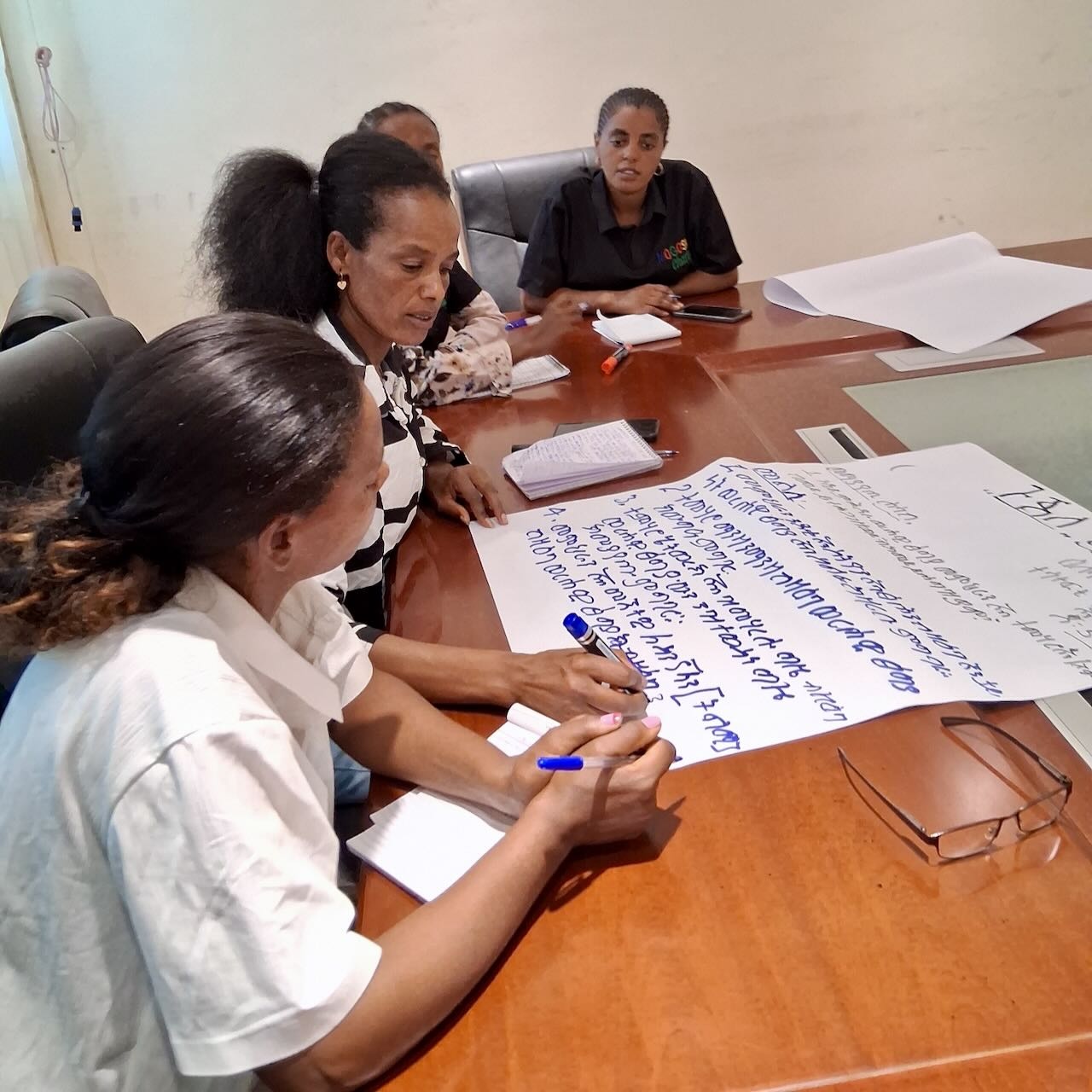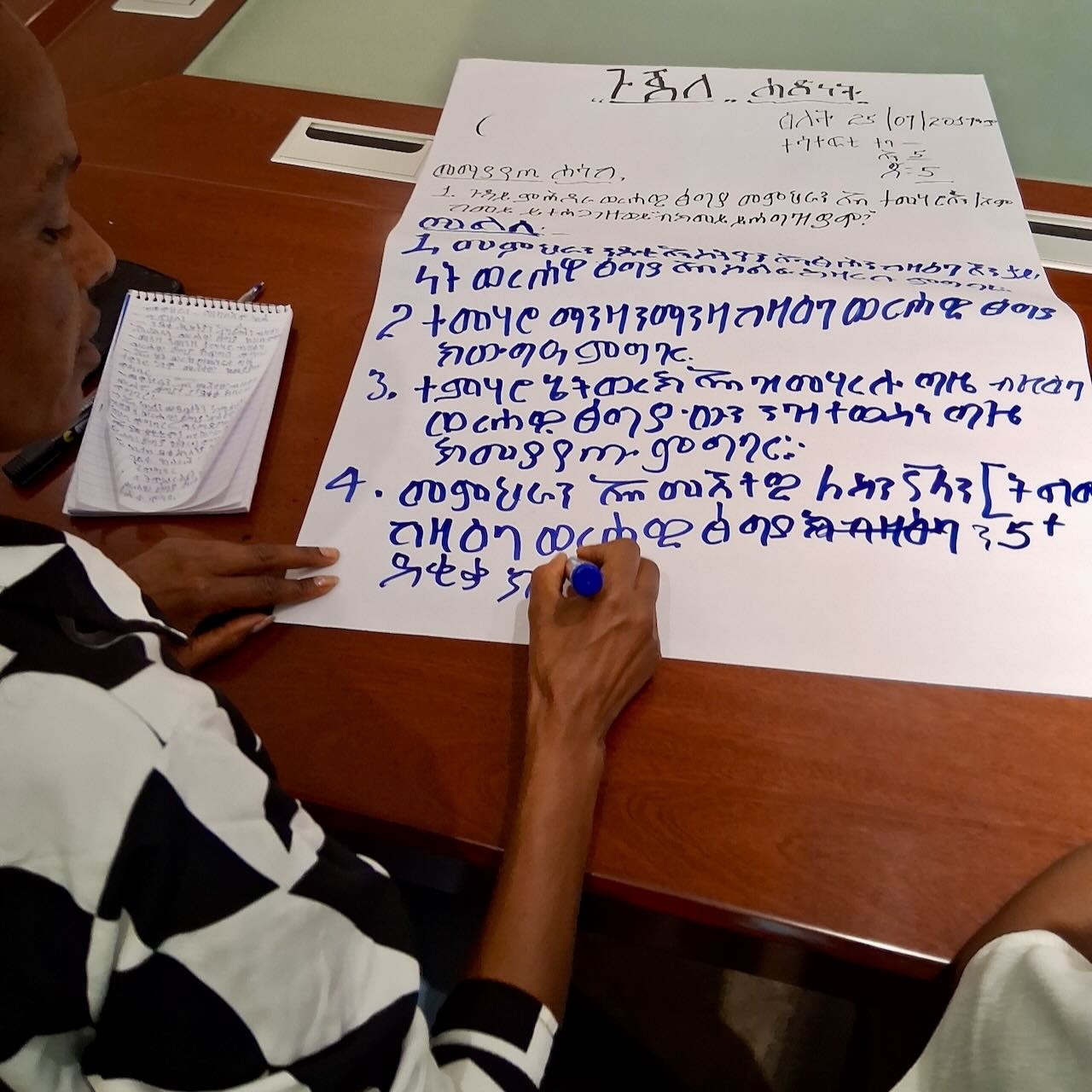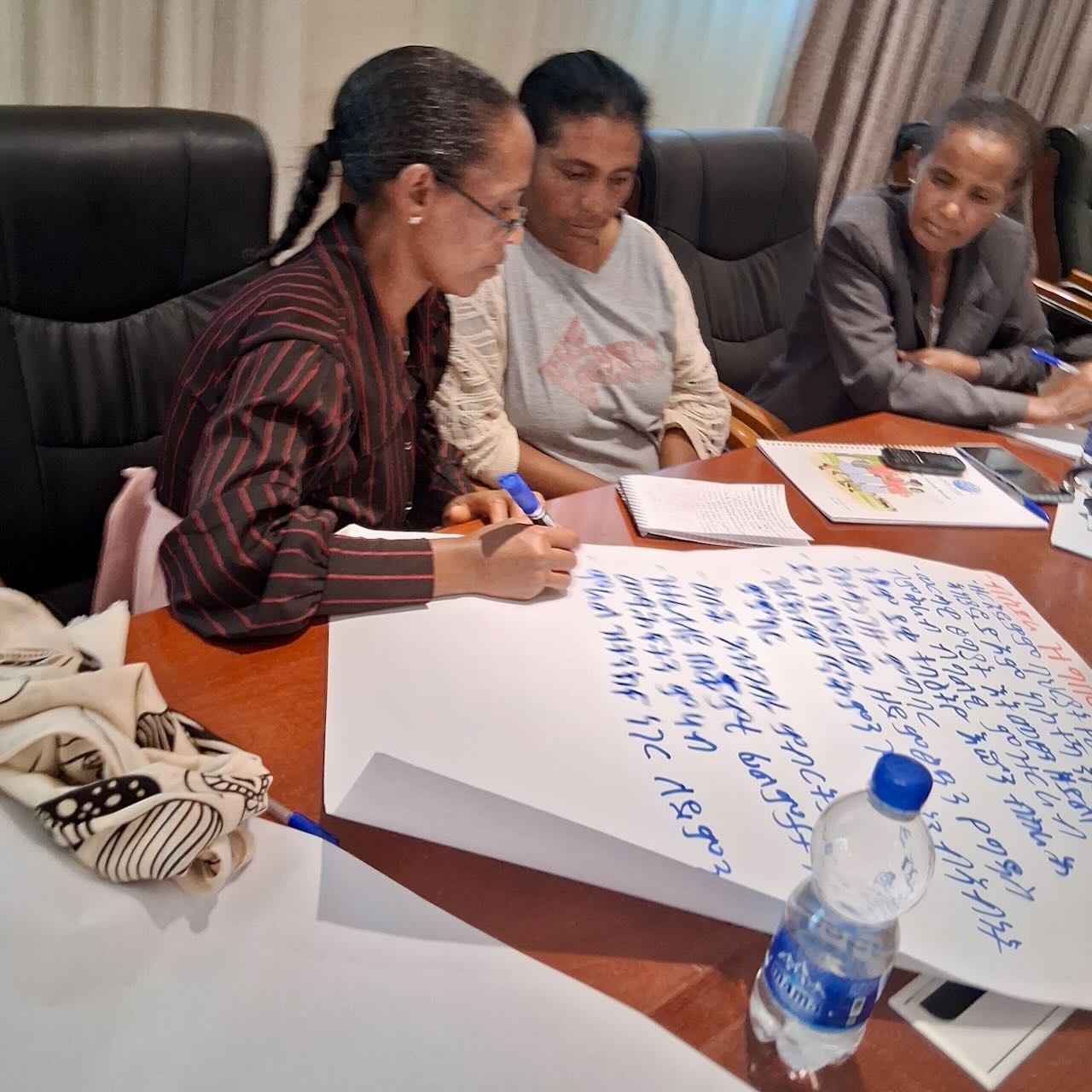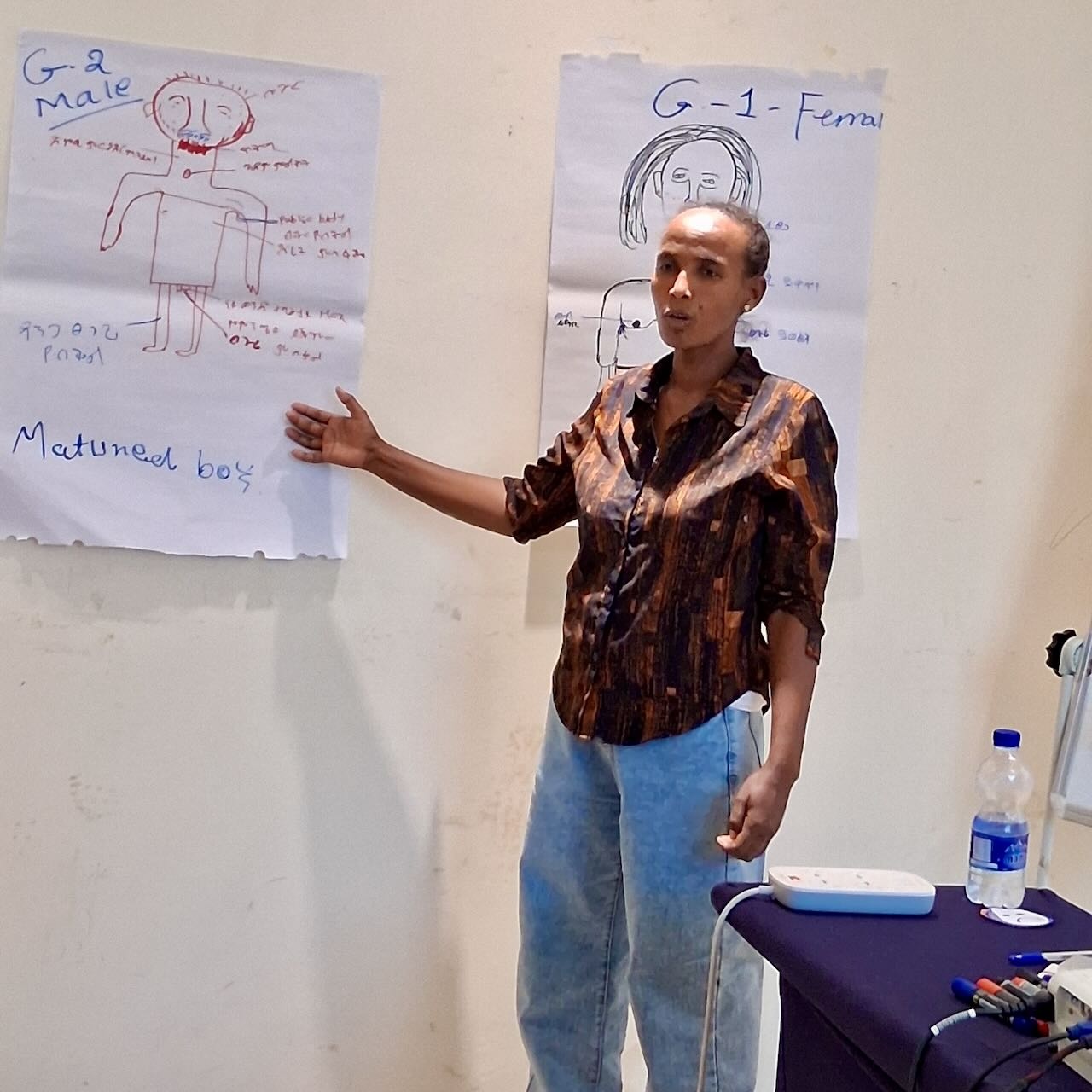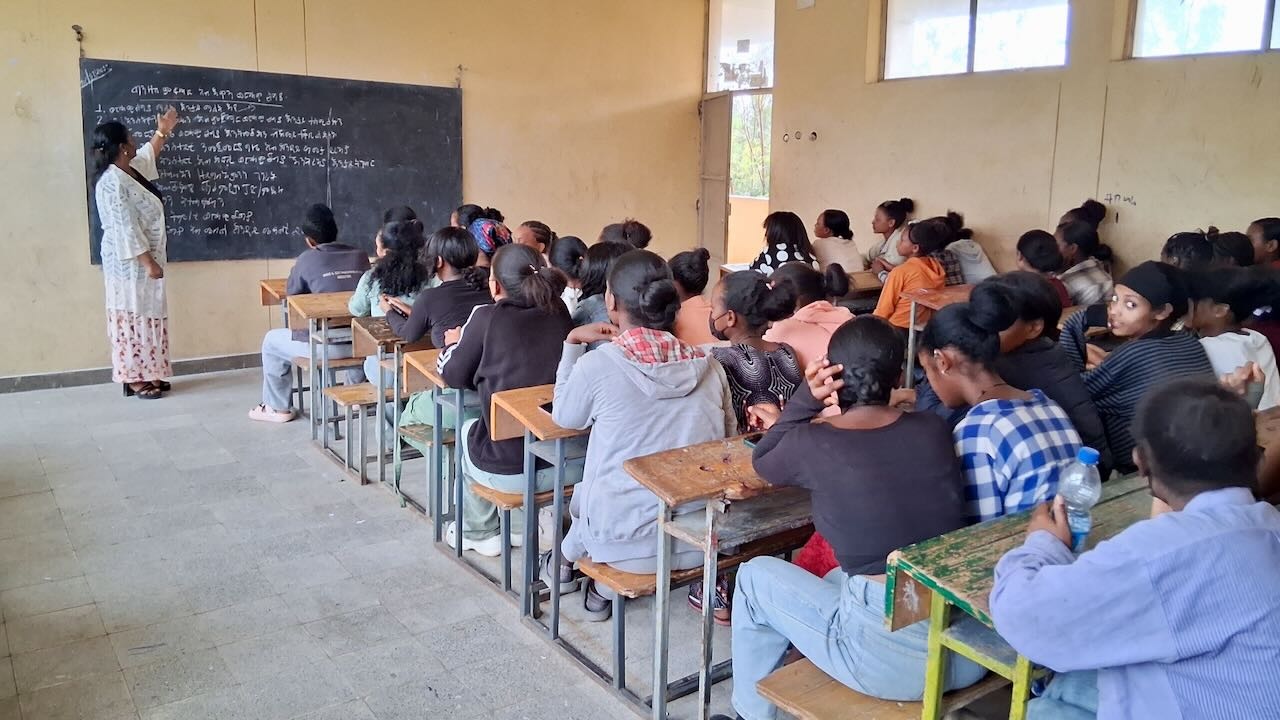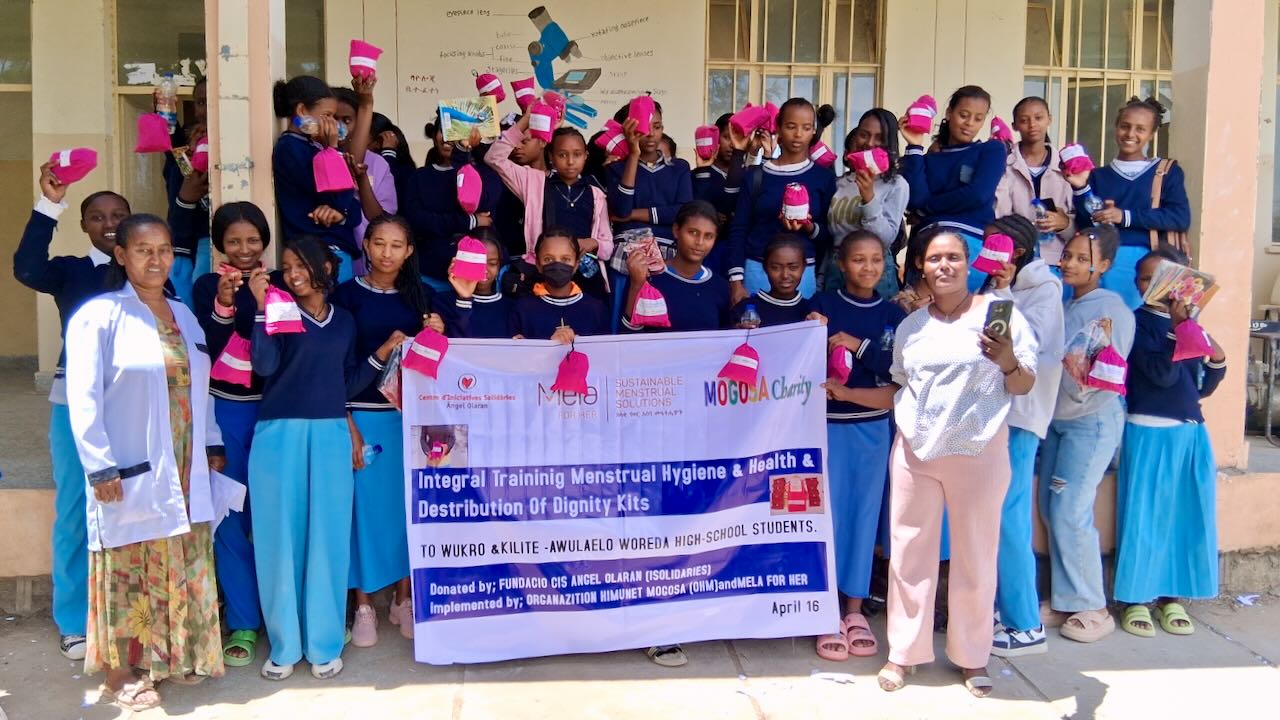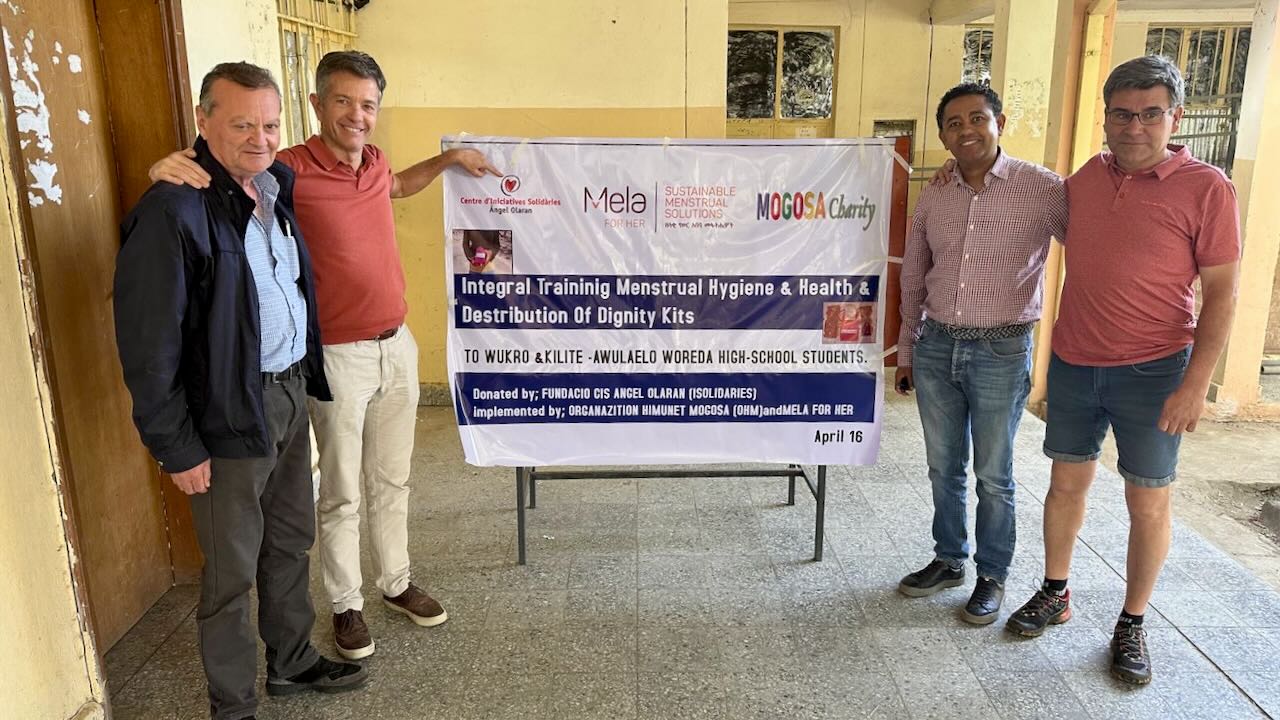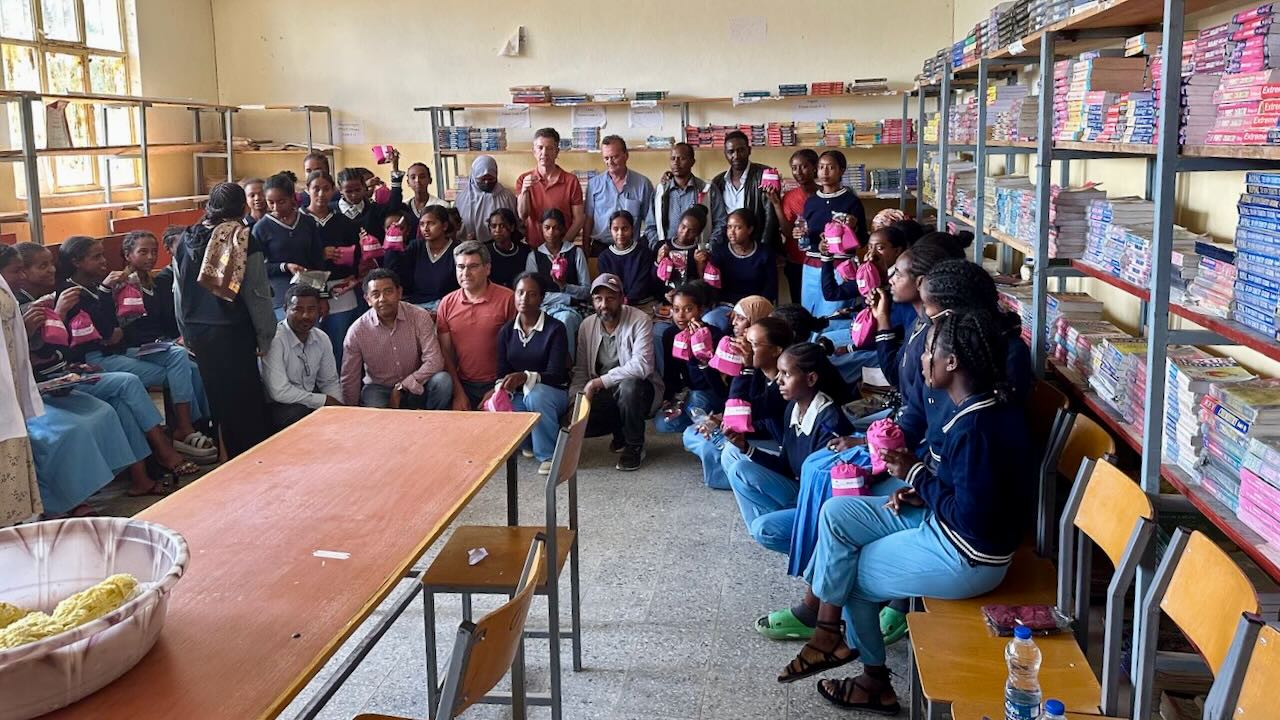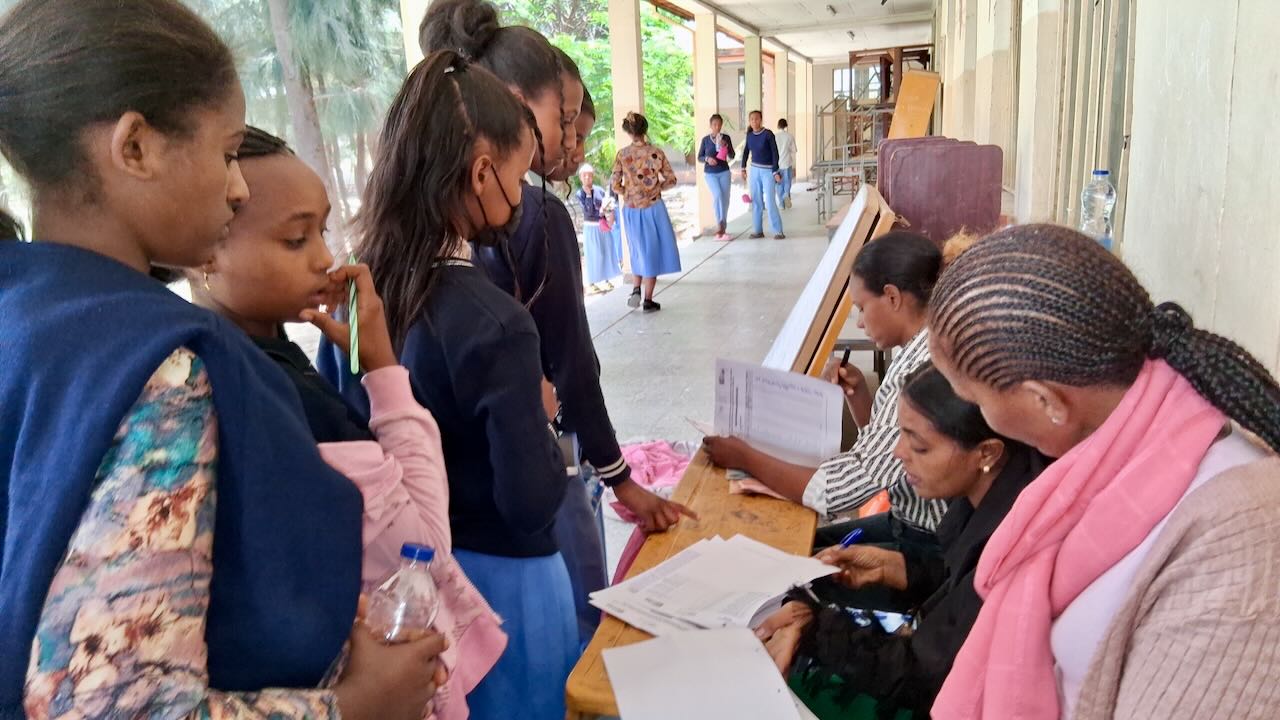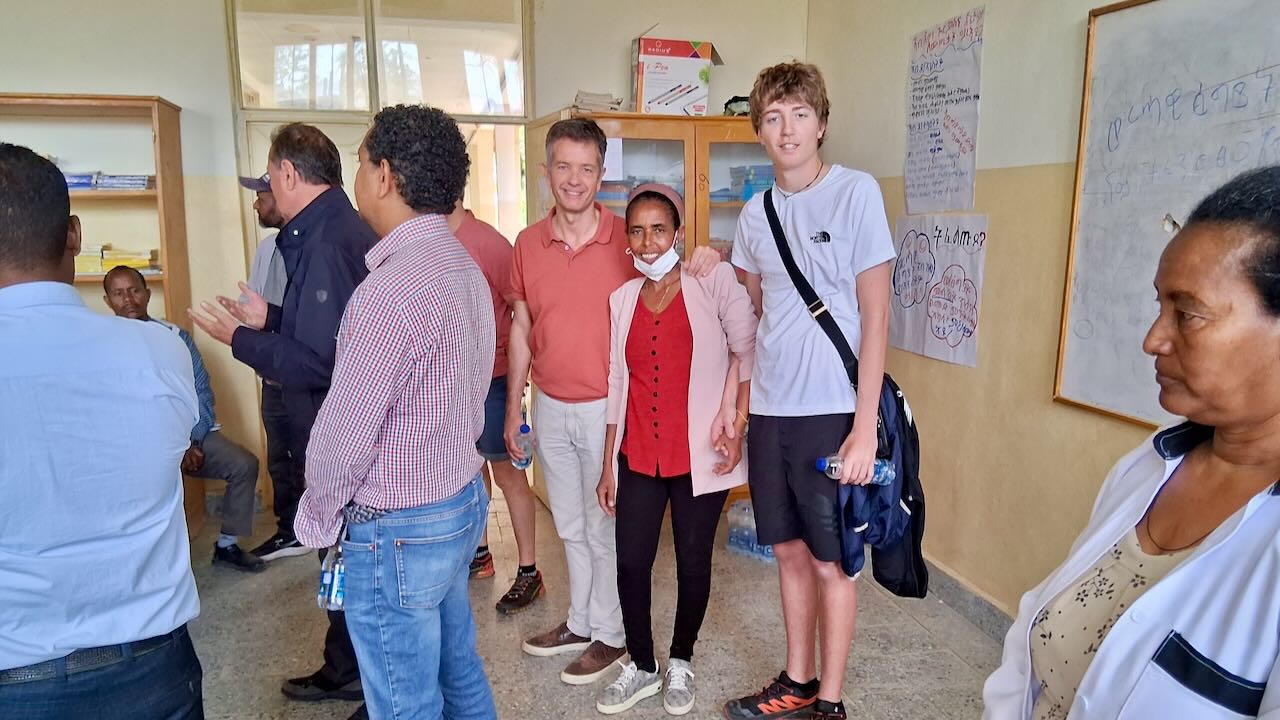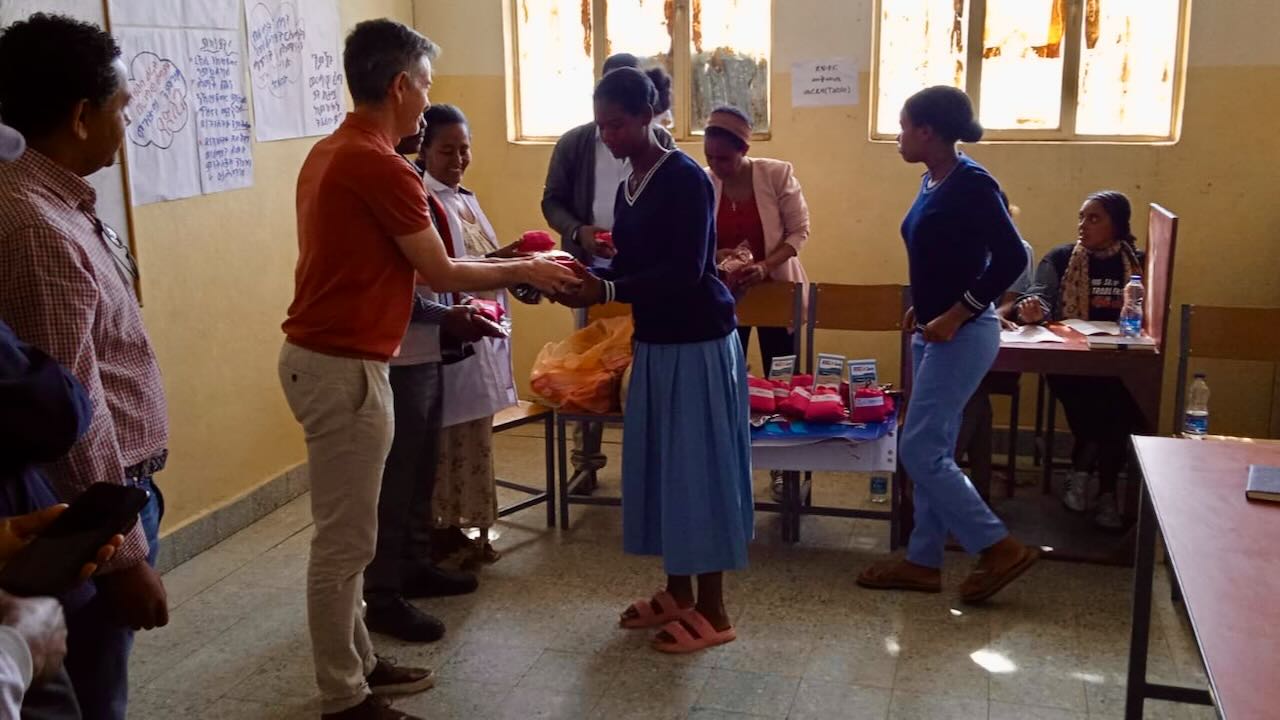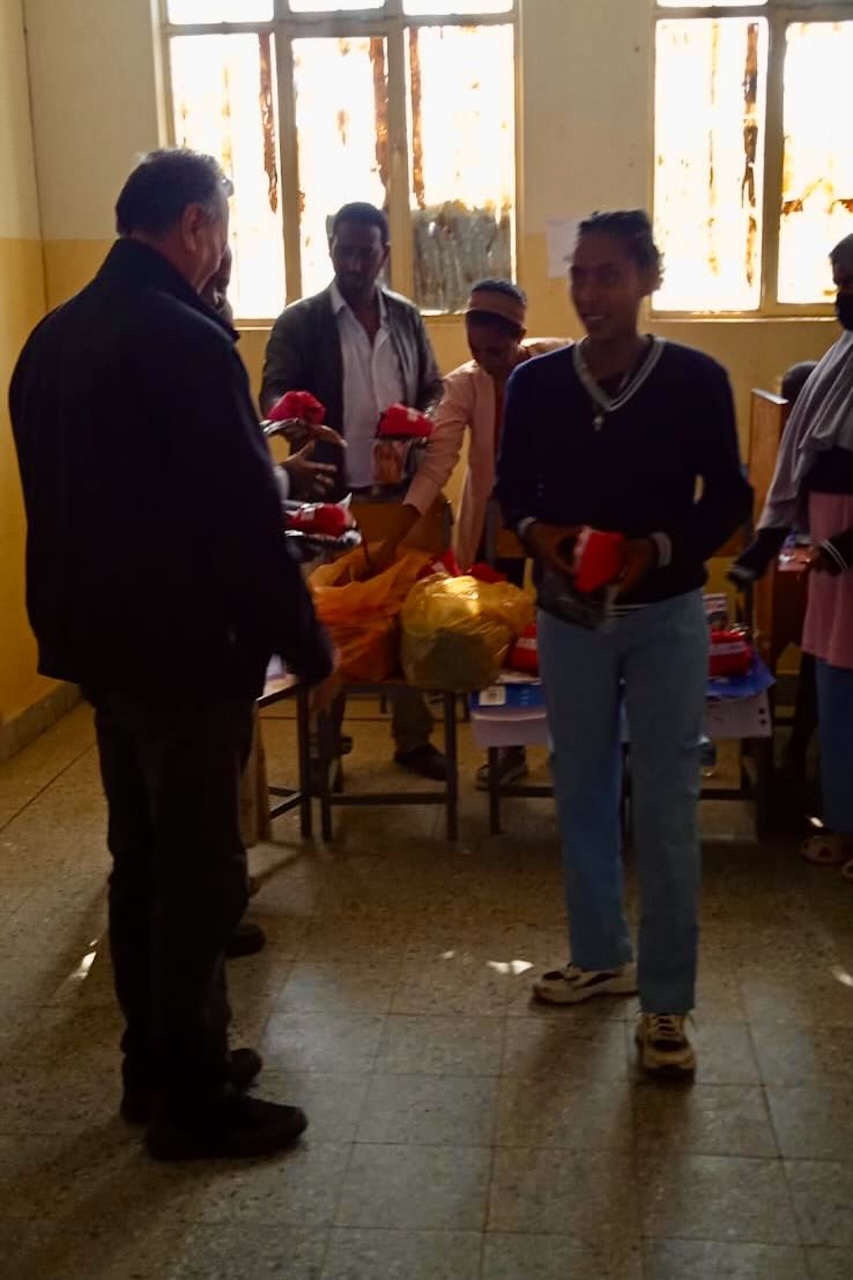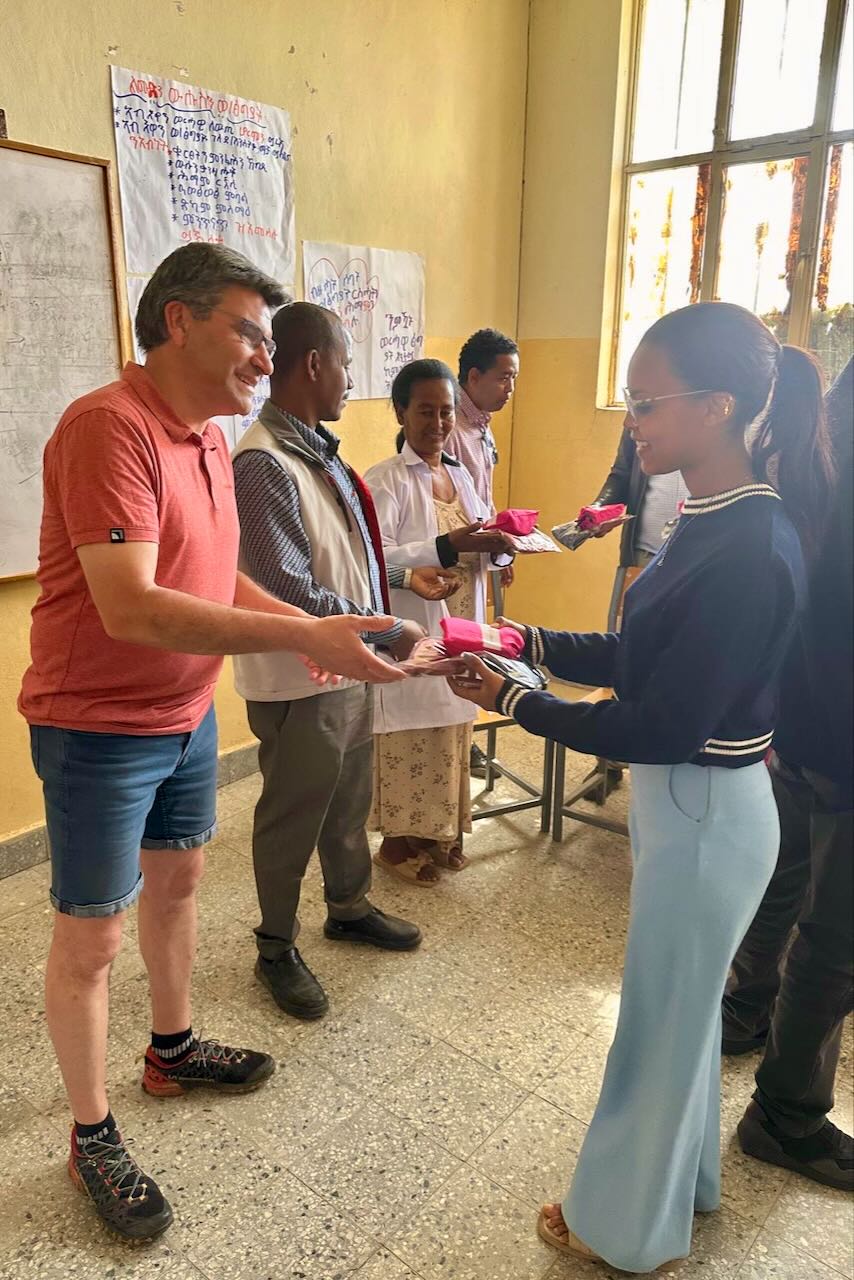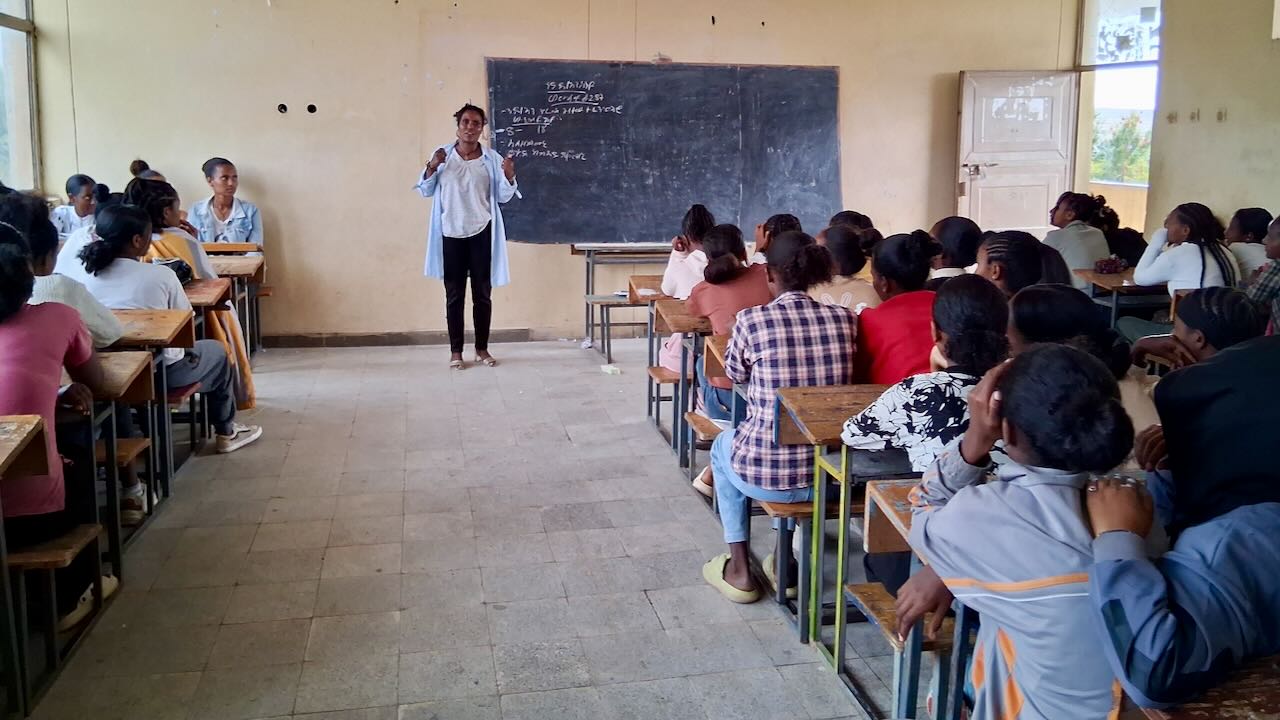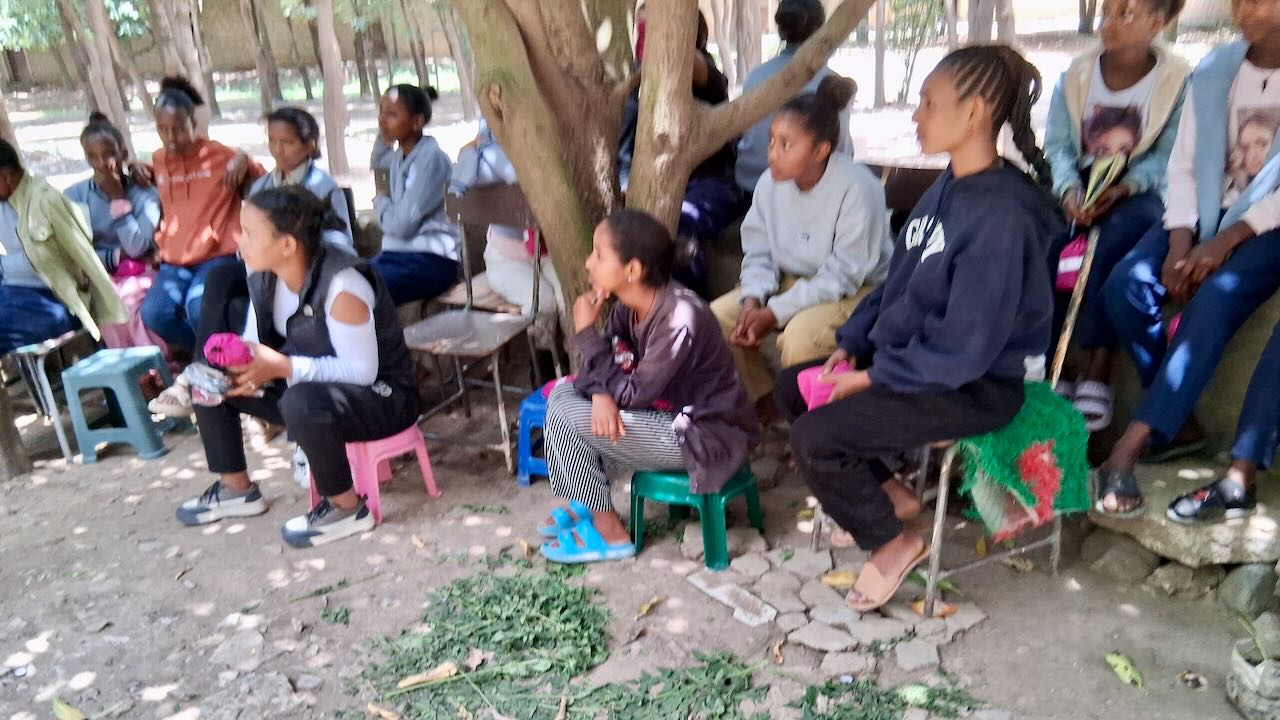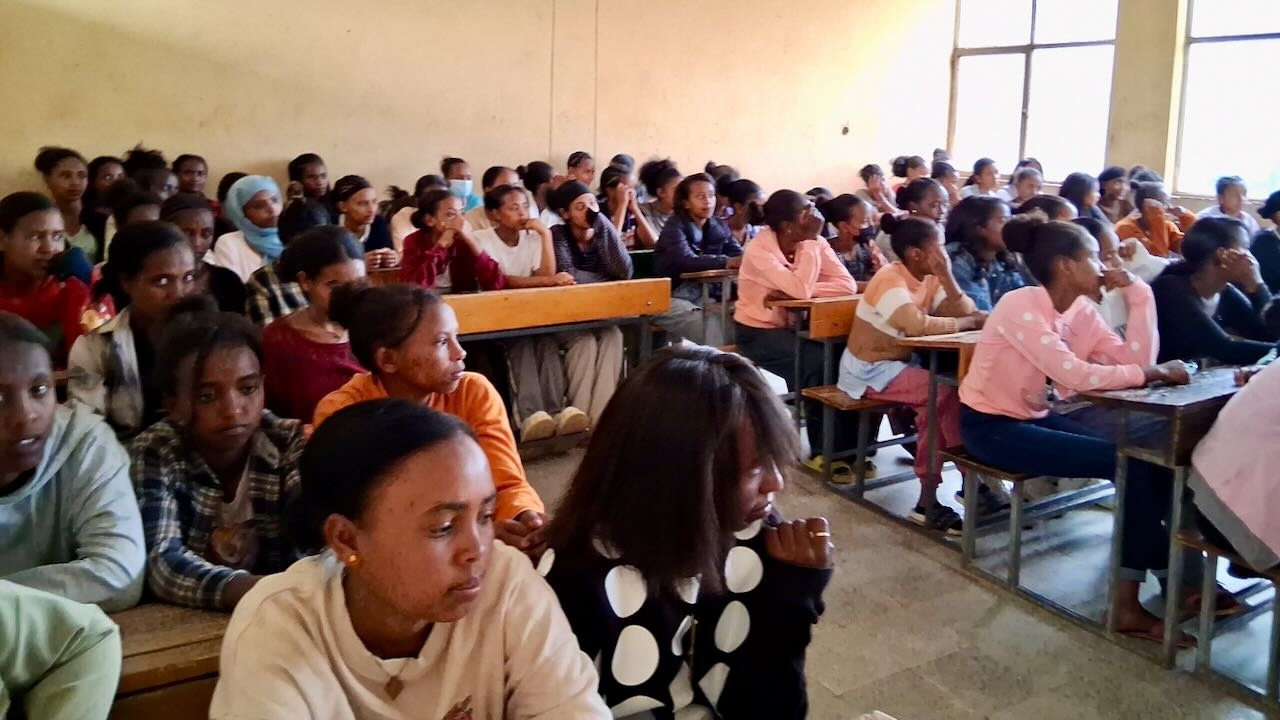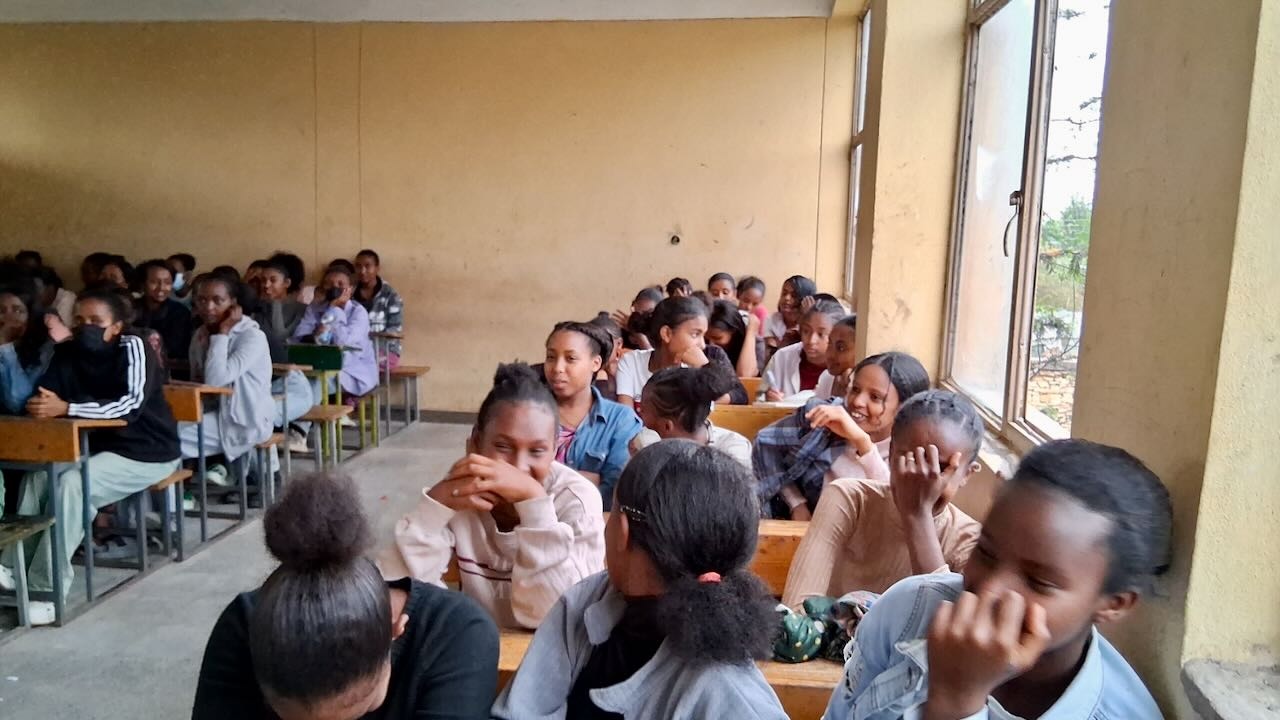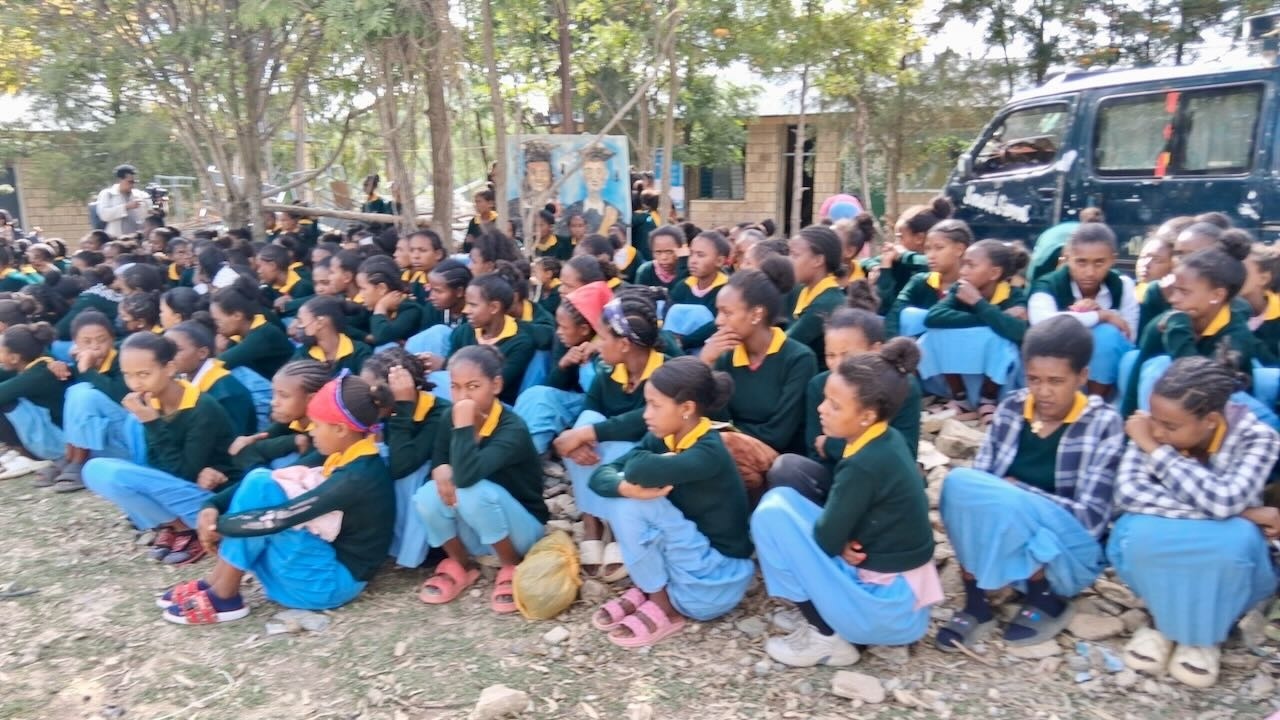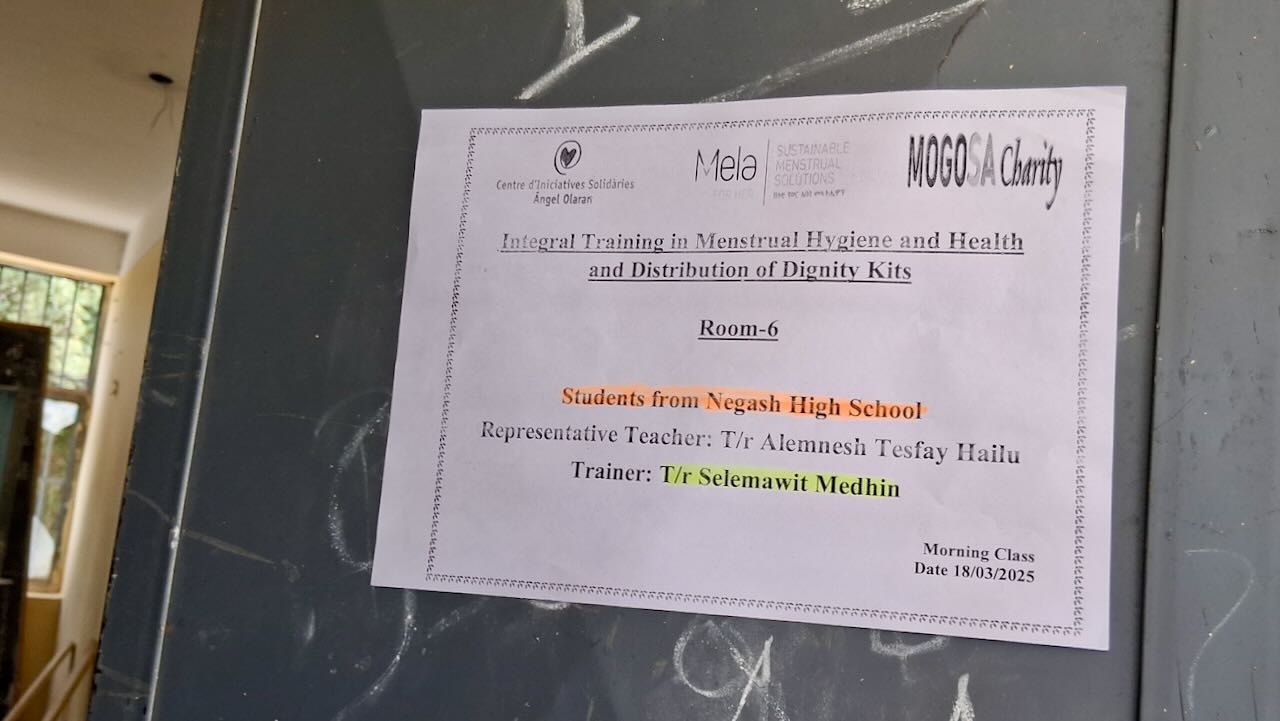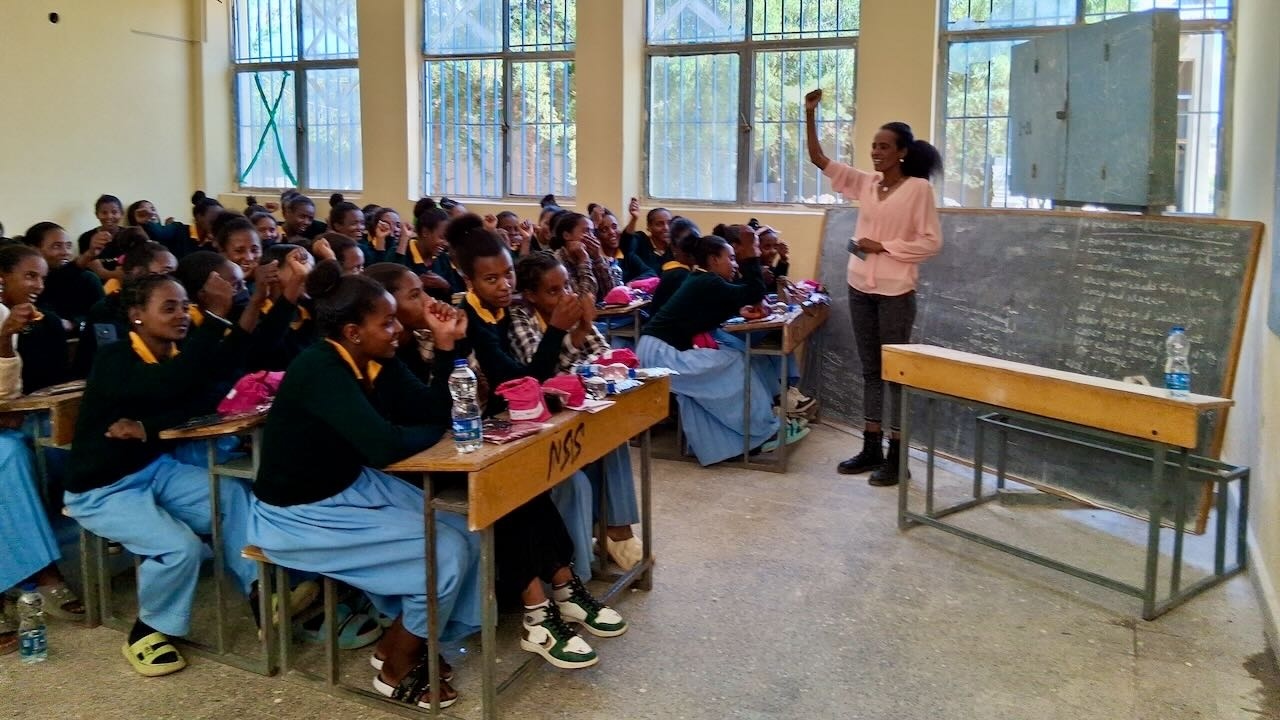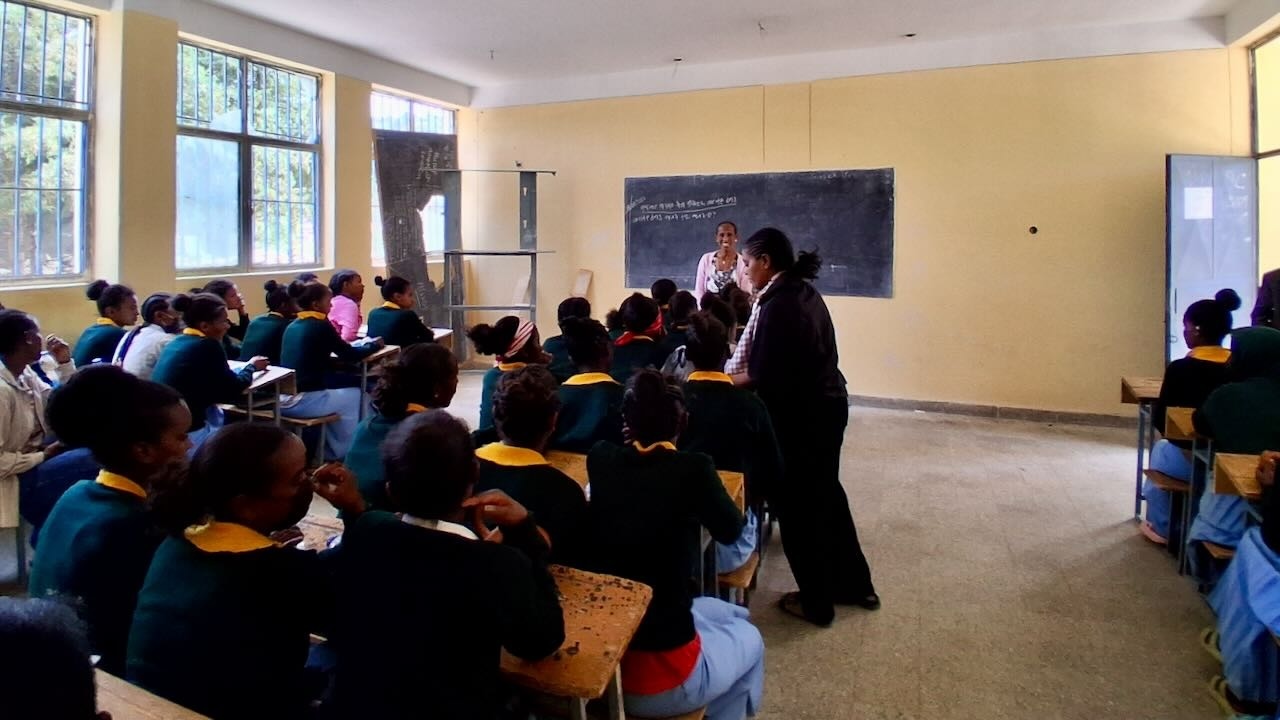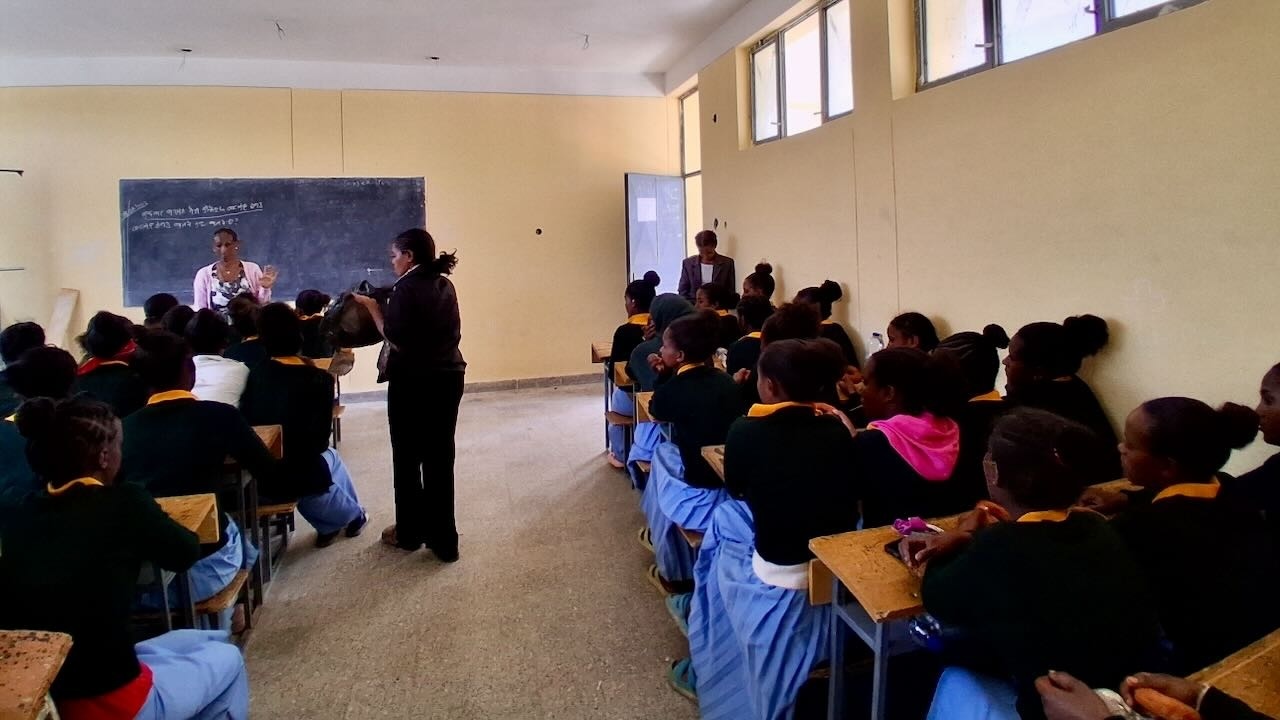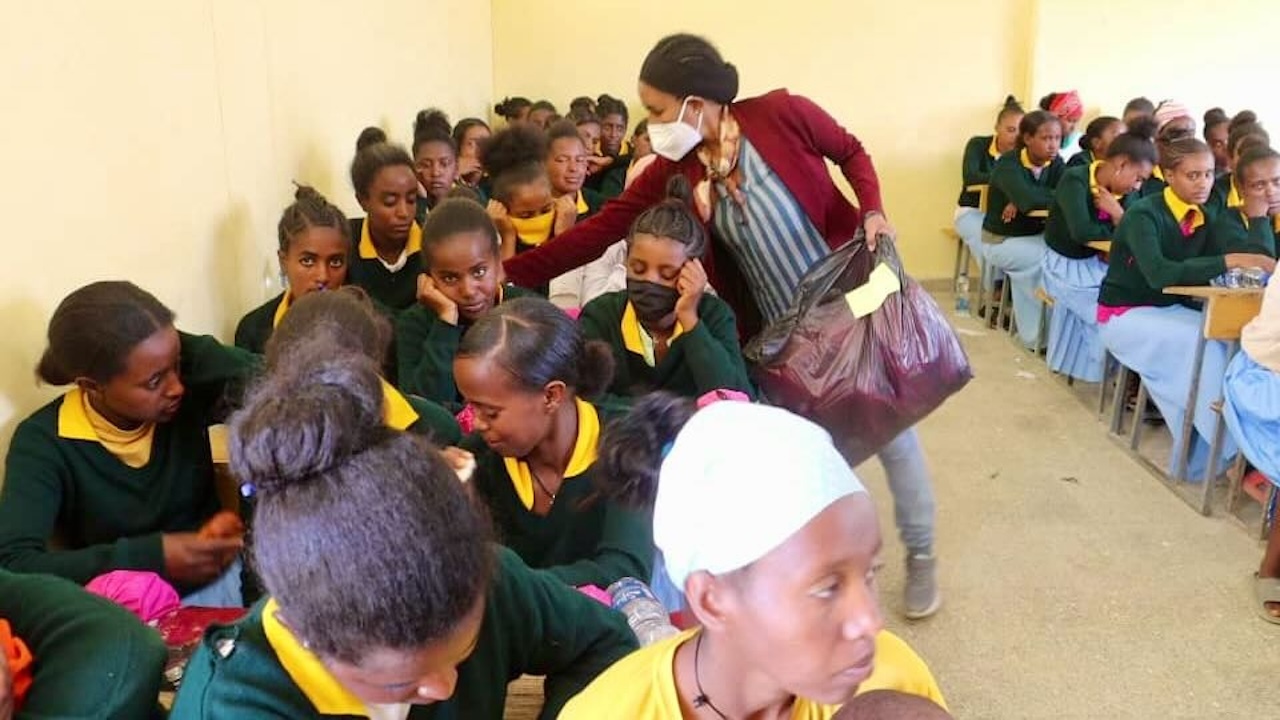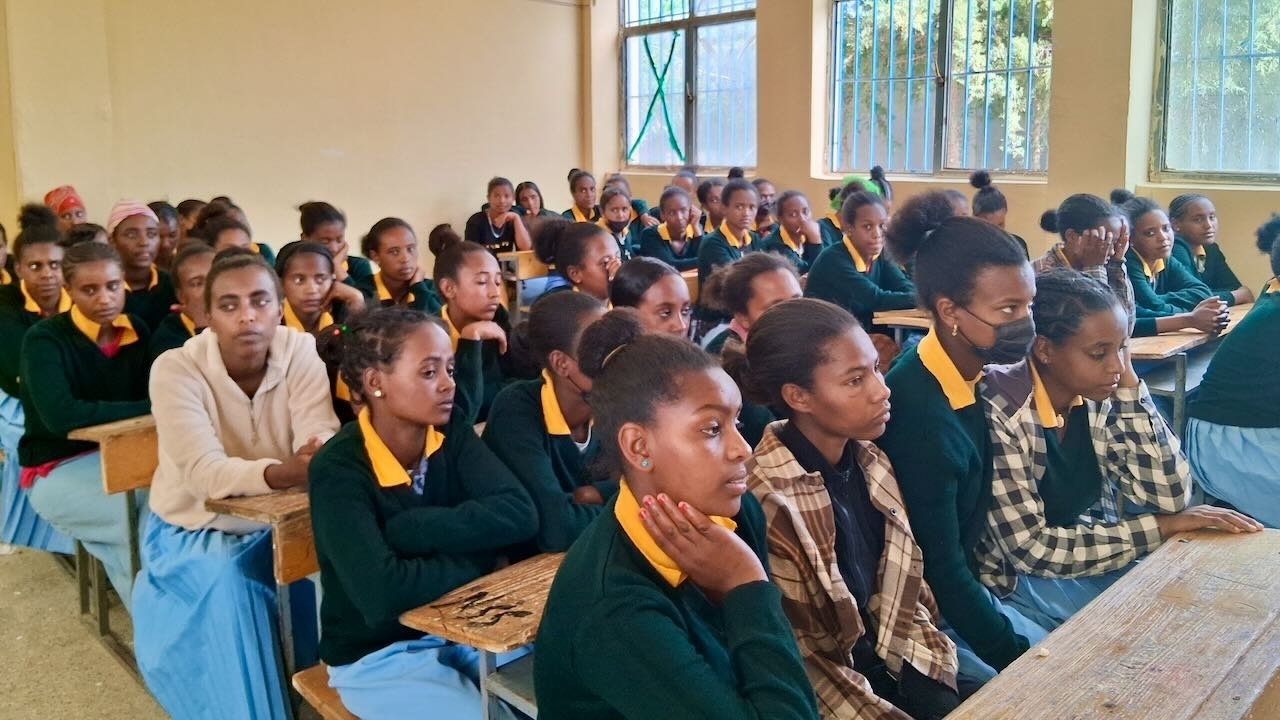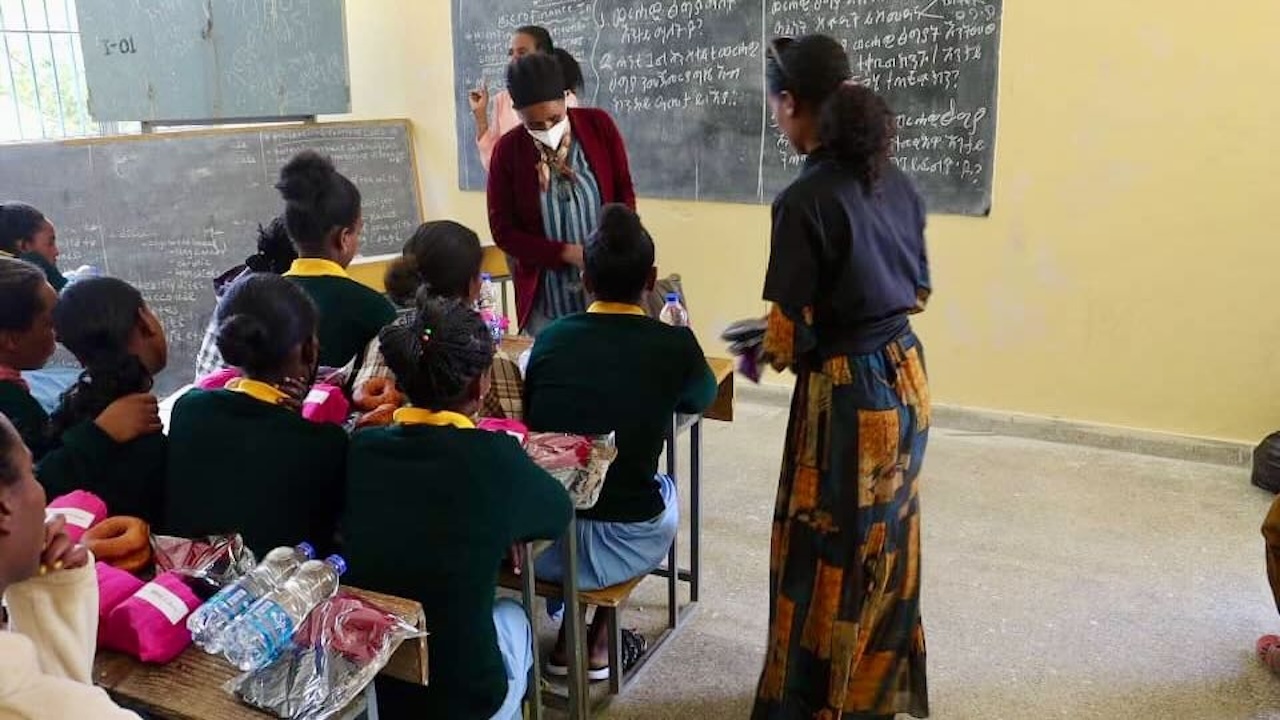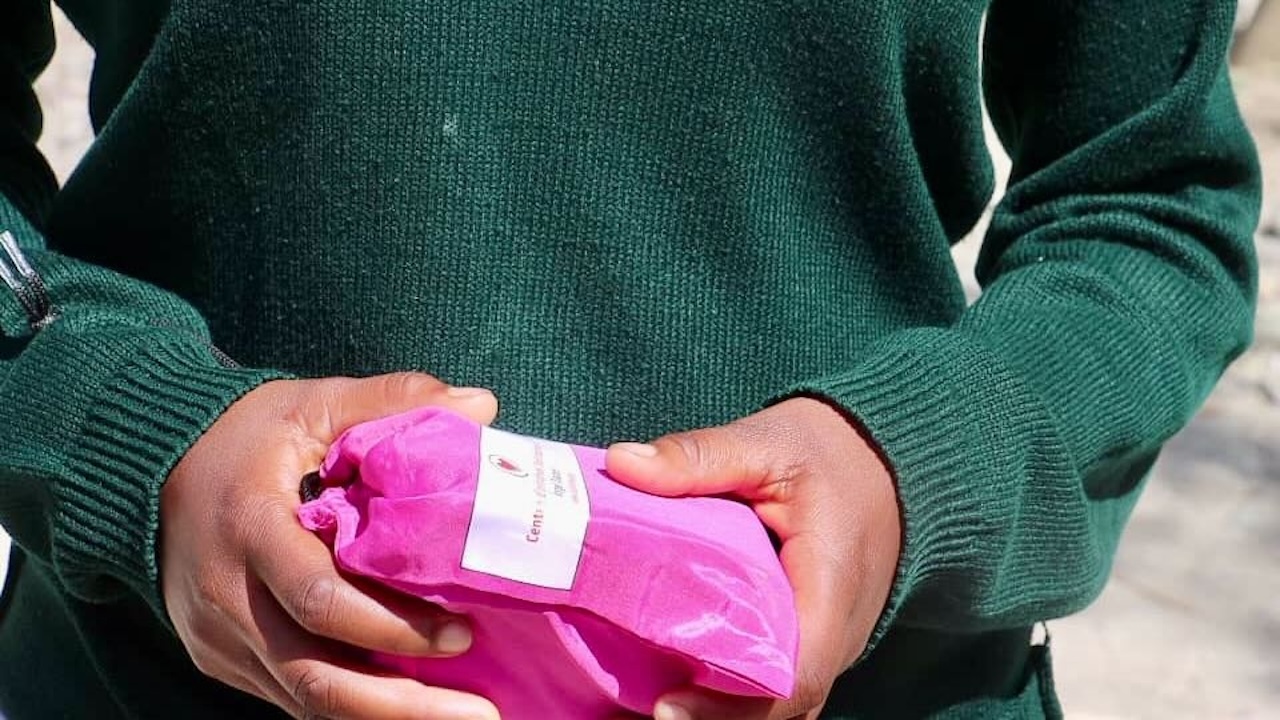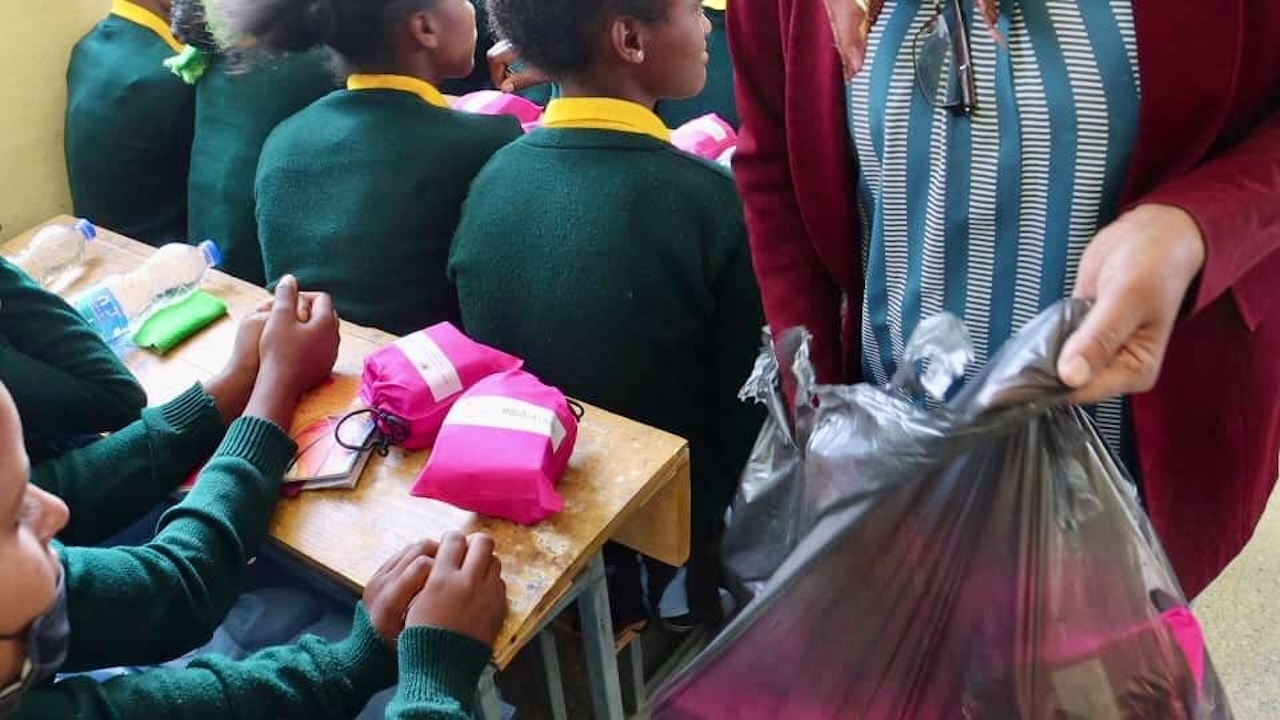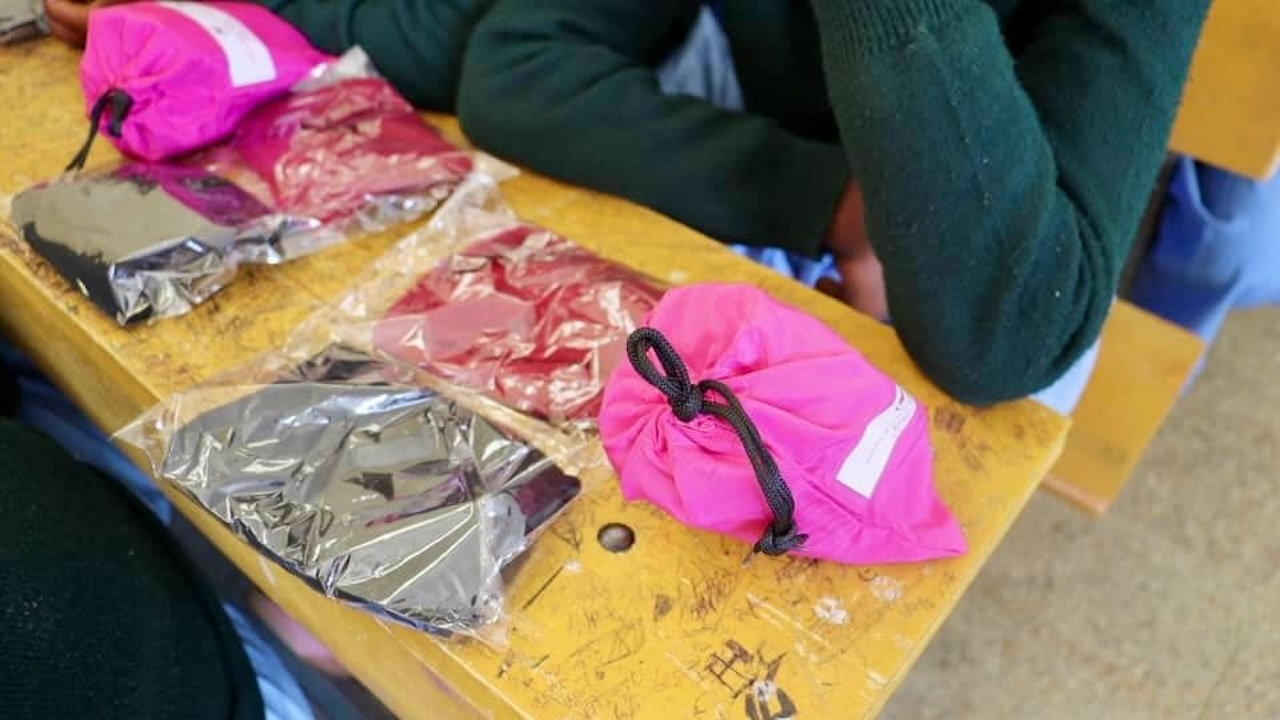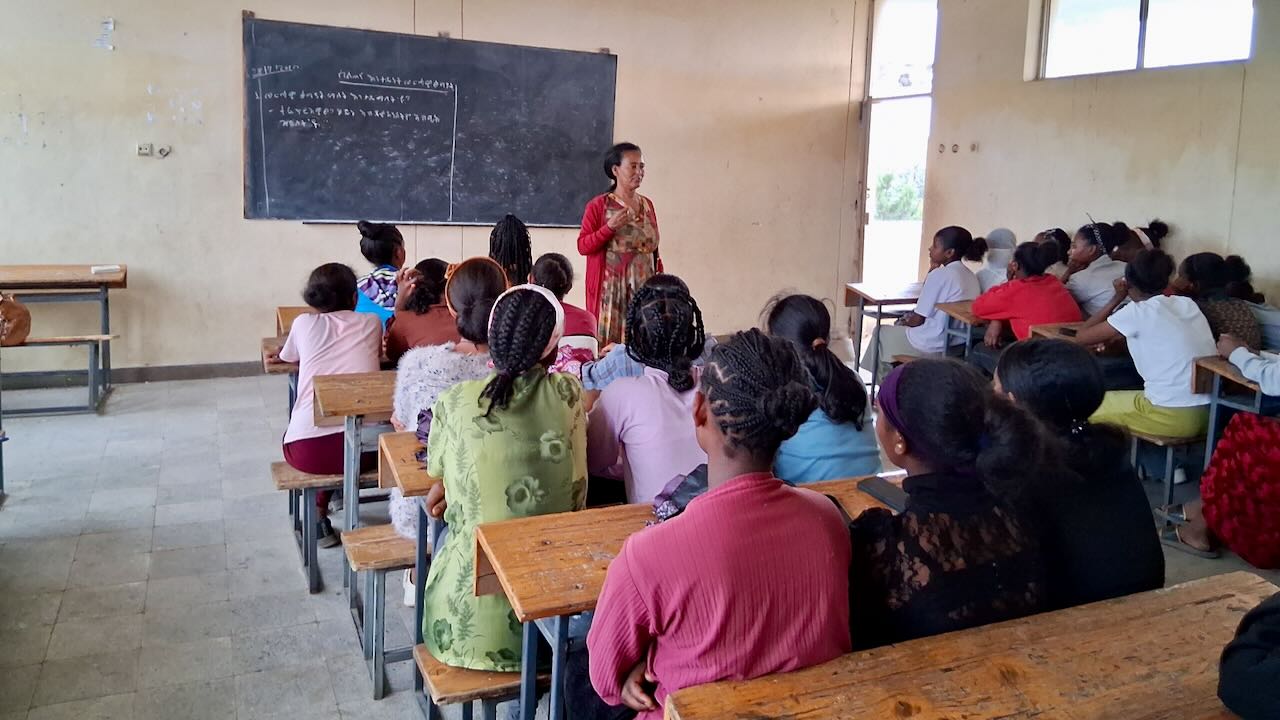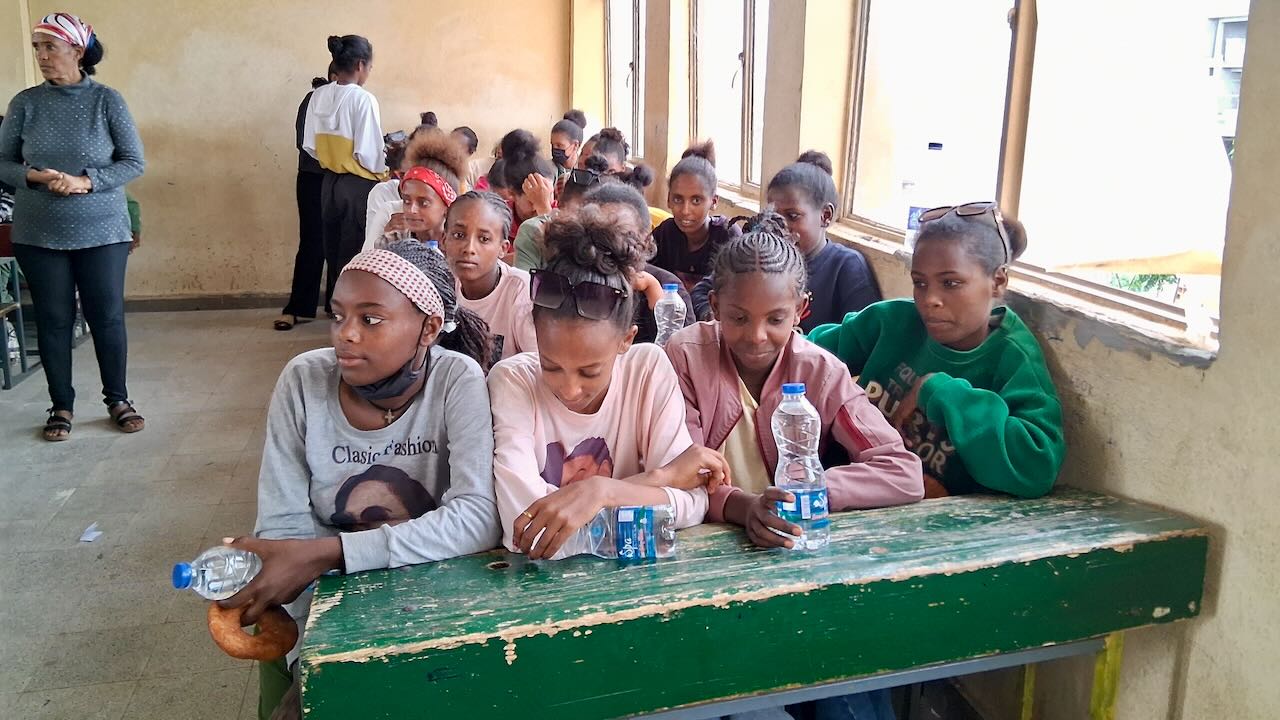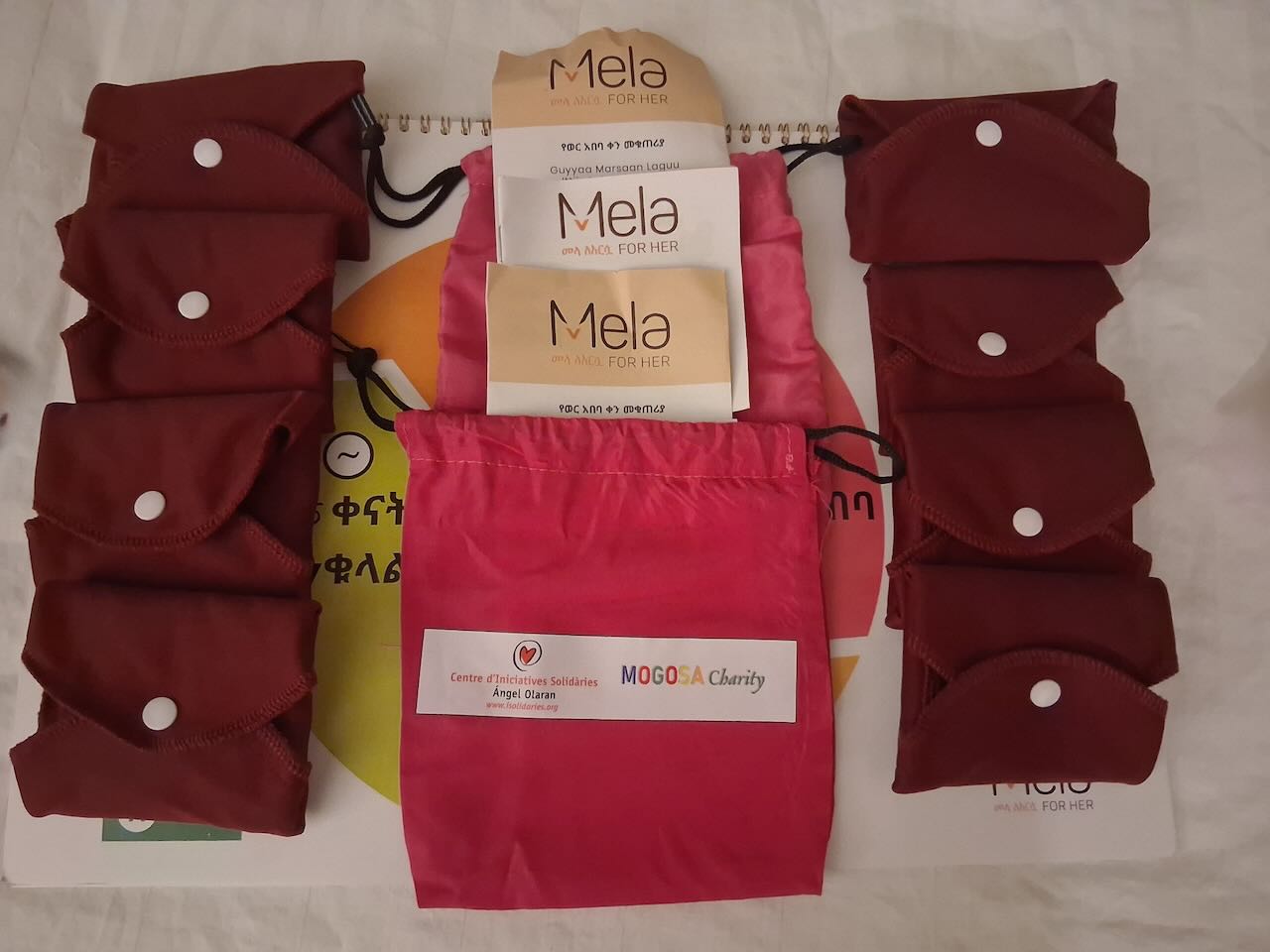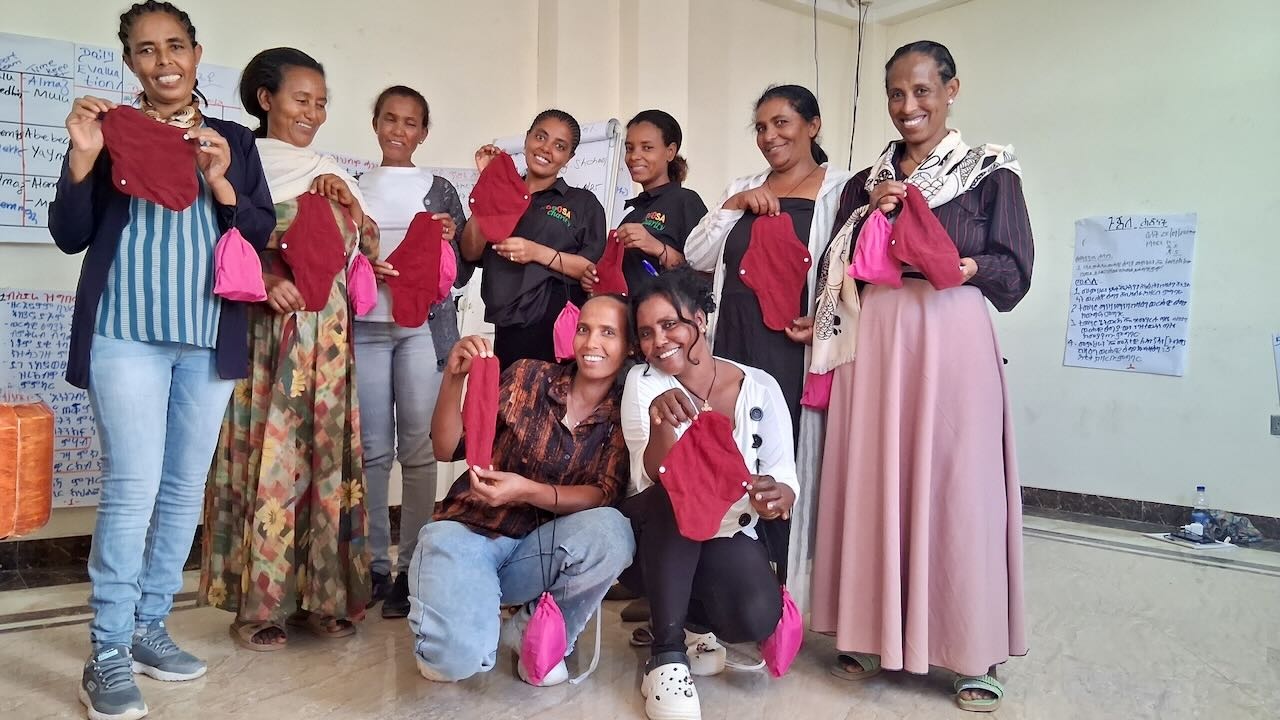Empowerment of Girls, Adolescents and Women in Wukro, Tigray (Ethiopia)
Empowerment of Girls, Adolescents and Women in Wukro, Tigray (Ethiopia)
This project was born with the goal of empowering girls, adolescents and women in Wukro, Tigray (Ethiopia), ensuring that they can manage their menstruation safely, knowledgeably and with dignity. Through an integrated approach, it addresses both material needs — such as access to reusable menstrual products — and educational and structural needs through training and community awareness-raising activities.
The aim is not only to meet an immediate need, but to build a long-term sustainable solution. That is why the initiative includes a second phase focused on creating a local production system for reusable sanitary pads, generating employment for women in the community and consolidating permanent menstrual education and distribution networks. In this way, the project seeks to leave a lasting footprint that promotes autonomy, health and dignity beyond the initial intervention.
Comprehensive training in menstrual hygiene and health, distribution of dignity kits and social transformation
Menstruation is a natural gift. So is dignity. Help us ensure no girl has to experience it with fear or shame. Empowerment, health, and dignity for women and girls. Join the project and make your donation!
Introduction
The CIS Ángel Olaran Foundation, together with Mela for Her and Mogosa, is driving forward a comprehensive and transformative project to significantly improve the quality of life of vulnerable girls, adolescents and women in the city of Wukro, in the Tigray region of Ethiopia. Through specialised menstrual hygiene education, access to reusable and sustainable sanitary products, and the removal of socio-cultural barriers, the project aims not only to address immediate needs but also to bring about a profound change in social perceptions around menstruation.
Context and justification
In Ethiopia, more than 24 million women and girls face serious challenges related to menstrual hygiene management, affecting their physical, emotional and economic health. Only 28% have adequate access to menstrual products, and the situation is even more critical in rural areas. This leads to frequent school and work absenteeism, limiting their opportunities for personal and economic development. Inadequate homemade solutions increase the risk of infections and other reproductive health problems such as infertility or complications during childbirth.
The recent conflict in northern Ethiopia has interrupted the education of thousands of girls, increasing their vulnerability to early marriage and teenage pregnancy. This situation has heightened the urgent need for humanitarian intervention that directly addresses menstrual hygiene — a key issue in restoring dignity and access to fundamental rights such as education, employment and women’s social participation in Wukro.
Project Objectives
General Objective
To comprehensively empower vulnerable girls, adolescents and women in Wukro, promoting their autonomy, dignity and participation in society through menstrual hygiene education and sustainable access to adequate sanitary products.
Specific Objectives
• Train and empower local trainers in menstrual hygiene and women’s health so that they can replicate and sustain knowledge within their communities.
• Distribute 1,000 dignity kits consisting of high-quality reusable sanitary pads and underwear.
• Develop community-based activities to eradicate socio-cultural taboos around menstruation that limit women’s wellbeing and autonomy.
• Promote gender equality by ensuring that girls and women can continue their education and participate in economic activities.
• Explore and assess local potential for future production initiatives that generate women’s employment and ensure continuous access to sustainable menstrual products.
Target Population
• School-aged girls and adolescents between 12 and 18 years old attending public secondary schools in Wukro. Many of them miss classes during their periods due to lack of access to adequate menstrual products.
• Young and adult women in situations of social and economic vulnerability, identified in collaboration with local authorities and the NGO Mogosa.
• Teachers, community agents and technical staff who will receive training to become knowledge multipliers in their respective communities.
Activities and Methodology
• Comprehensive training: A two-day specialised Training of Trainers (ToT) programme on Menstrual Hygiene Management (MHM) was delivered to senior members of the Mogosa team, using participatory methods and audiovisual tools covering menstrual hygiene, human rights and gender. The trained team then developed a training and distribution plan for six target schools.
• Replication of training in Wukro: A three-day training course was carried out by Mogosa staff for six teachers from selected schools, local Social Affairs representatives and community facilitators. The training focused on practical content regarding menstrual hygiene and the role of schools in creating safe and respectful learning environments for menstruating students.
• Kit distribution: Delivery of 1,000 dignity kits including high-quality reusable sanitary pads, underwear and multilingual educational materials on menstrual health.
• Educational campaigns: Implementation of workshops and community sessions to raise awareness and dismantle stigma surrounding menstruation, thereby promoting social acceptance.
• Market assessment: Identification and evaluation of local potential for future economic initiatives related to the production of reusable menstrual products, aimed at generating employment for women and establishing permanent menstrual education and distribution networks.
Expected Results
• Significant reduction in school and work absenteeism among girls and women beneficiaries.
• Increased community awareness of menstrual hygiene and reproductive health.
• Tangible and measurable economic and social empowerment of project beneficiaries.
• Creation of sustainable employment opportunities in the local production and distribution of reusable menstrual products.
Sustainability
The project strongly supports sustainability through the use of reusable menstrual products, reducing the environmental impact associated with disposable items. Additionally, through local training and the future creation of production workshops in Wukro, the initiative aims to establish a sustainable economic model that empowers women beneficiaries, ensures their financial autonomy and guarantees the long-term continuity of the project.
Second Phase of the Project: Local Production Workshops
Once the first phase of the project is complete, a detailed technical and economic feasibility assessment will be conducted to establish a local workshop in Wukro to produce reusable menstrual kits. This workshop will aim to provide stable employment for local women, boost the local economy and ensure ongoing access to affordable and sustainable menstrual products in the region.
Local Partners and Collaborators
• Mela for Her: An Ethiopian social enterprise specialised in producing and providing training on sustainable menstrual products, committed to international quality standards (ISO 9001:2015 and ISO 14000).
• Mogosa: A local NGO recognised for its extensive experience in community and emergency projects, responsible for logistics, local coordination and beneficiary selection in close collaboration with local authorities.
• Local Government Departments: Including education, health and women’s affairs, supporting the effective implementation of the project.
Budget and Funding
The total budget required for the first phase of the project is €15,052, entirely allocated to training trainers, planning the educational intervention and distributing 1,000 dignity kits that include reusable sanitary pads, underwear and educational materials. The budget breakdown is as follows:
• Mela for Her: €8,929.30 (kit production, educational materials and technical support).
• Mogosa: €6,071.22 (logistics, local training and distribution).
This first phase also includes a market assessment to explore the potential for establishing a community-based production system for reusable pads. This forms the foundation for the second phase of the project, which aims to ensure long-term sustainability through:
• The design and implementation of a local production workshop in Wukro to generate employment for women.
• Consolidating local distribution and menstrual education networks.
• Securing long-term project sustainability while promoting women’s autonomy, health and dignity beyond the initial intervention.
An estimated additional budget of €10,000 will be required to make this second phase a reality, covering implementation costs, technical training, equipment and local workshop coordination.
Monitoring and Evaluation
The project includes a rigorous monitoring and joint evaluation system conducted by CIS Ángel Olaran Foundation, Mela for Her and Mogosa. Regular reports will be produced, supported by photographs, interviews and testimonies that document the project’s progress, achievements and areas for improvement.
Your Participation Makes a Difference
Your support is crucial to changing lives, breaking the cycle of poverty and empowering an entire generation of women in Wukro. Be part of this transformation by contributing today. Every contribution counts. Every gesture creates opportunity.
Make your donation now and help us build a just, dignified and equitable future in Wukro!
What Have We Achieved?
Thanks to the solidarity of our donors and partner organisations, we have successfully completed the first phase of the project:
Comprehensive Training in Addis Ababa: Strengthening the Mogosa Team’s Capacities
As part of the preparatory phase of the project, a two-day intensive training on Menstrual Hygiene Management (MHM) was delivered in Addis Ababa to two senior members of the Mogosa team. This training, following the Training of Trainers (ToT) methodology, addressed key menstrual health concepts, good practices, debunking persistent myths about menstruation, facilitation techniques and the role of key stakeholders in ending menstrual poverty.
During the training, the Mogosa team not only consolidated their knowledge, but also developed a detailed plan to replicate the training at a local level and organise the distribution of reusable sanitary kits to six selected target schools: Megabit 30, Awulaelo, Wukro, Negash, Aynalem and the Wukro Preparatory School.
Replicating the Training in Wukro: Expanding Local Impact
After receiving training in the capital, the Mogosa staff replicated the ToT model in Wukro with a three-day training course aimed at teachers and community leaders. The training involved six teachers from the target schools, two representatives from local Social Affairs offices and four community facilitators from Mogosa from Wukro and surrounding areas.
The training focused on providing both theoretical and practical tools to address menstrual hygiene management in educational settings. Key concepts were addressed, as well as ways to overcome stigma and false beliefs. The essential role of teachers in creating inclusive and respectful school environments for menstruating students was emphasised. This training initiative marks a vital step toward ensuring safe and dignified conditions for girls and adolescents in their learning environments.
Education and Empowerment for Young Women in Wukro
As part of this project to empower girls, adolescents and women in Wukro, Tigray (Ethiopia), training sessions are being held in local schools, such as the one shown in the image, with text written on the blackboard in Tigrinya (Ge’ez script). On this occasion, the session focused on sexual and reproductive health — one of the core pillars of the programme.
During the session, topics covered included body awareness, the menstrual cycle, prevention of unwanted pregnancies and sexually transmitted infections, consent, and the importance of healthy relationships. All this was done through a participatory and culturally adapted approach, aiming to equip adolescent girls with the knowledge to make informed and autonomous decisions about their health and their future.
These types of workshops not only provide essential information, but also strengthen young women’s self-esteem and decision-making capacity, especially in contexts marked by gender inequality and limited access to education.
In addition, as part of the project, menstrual hygiene kits are being distributed to ensure that all girls can manage their periods with dignity and safety, without it becoming a barrier to their education or social participation.
Taboos have been broken and spaces of trust and knowledge have been created in schools and communities. We continue to work so that no girl has to give up her right to learn, care for herself and dream.
1,000 Dignity Kits to Empower Girls and Women in Wukro, Tigray (Ethiopia)
1,000 girls and women in Wukro have received dignity kits containing reusable sanitary pads, underwear and educational materials.
Awulaelo School
Awulaelo School, with students benefiting from the project.
Megabit-30 School
Megabit-30 School, with students benefiting from the project.
Wukro School
Wukro School, with students benefiting from the project.
Negash School
Negash School, with students benefiting from the project.
Other schools
Other schools with students benefiting from the project.
Quality and Benefits of Mela for Her’s Reusable Products in the Project
This section provides detailed information about the reusable products used in the project, highlighting their quality, specific features, economic and environmental advantages, as well as their contribution to the economic and social empowerment of the women beneficiaries.
What is Mela for Her?
Mela for Her is an Ethiopian social enterprise founded in 2020 with the main objective of offering sustainable solutions to menstrual poverty through reusable products, menstrual health education and job creation for vulnerable women. Over 85% of the team are women, reinforcing the organisation’s commitment to female empowerment.
Quality and Characteristics of the Reusable Products
The reusable menstrual products supplied by Mela for Her for the project stand out for their high quality, safety and comfort. They are made with soft, breathable and waterproof materials that offer high absorbency and long-lasting protection. Their ergonomic design makes them easy to wash and dry, ensuring hygienic and discreet menstrual management for years.
Advantages Over Disposable Products
Reusable products have significant advantages over traditional disposable pads, as they drastically reduce long-term costs by avoiding monthly purchases. Their continued use also lowers the risk of infections and adverse reactions, offering a safer and healthier option.
Positive Environmental Impact
Using reusable products significantly reduces the plastic waste generated by disposable pads, which can take 500 to 800 years to decompose. By opting for reusable solutions, the project contributes to local environmental protection and substantially reduces pollution. In Ethiopia, where waste management is limited, disposable menstrual waste often ends up polluting soil and water. Introducing long-lasting reusable products helps prevent the disposal of thousands of single-use pads per woman over the years. For example, equipping 1,000 girls and women with reusable kits means hundreds of thousands of disposable pads will not be thrown away, reducing tonnes of plastic waste in the region. This directly contributes to a cleaner environment and a smaller menstrual management footprint.
Economic and Social Empowerment of Women
The project promotes the economic and social empowerment of women in Wukro by planning the creation of local workshops for producing these reusable products. This initiative will generate stable employment, help women acquire professional skills and improve their economic independence.
Dignity Kits and Menstrual Education
Each dignity kit includes not only reusable menstrual products but also culturally adapted educational materials. This ensures that beneficiaries gain essential knowledge about menstrual health, empowering them to manage their periods with dignity, confidence and without taboos.
Each Mela for Her dignity kit is designed to offer a comprehensive solution. In the Wukro project, for example, each MELA Premium Dignity Kit includes 4 reusable pads (3 daytime and 1 overnight), 2 pairs of underwear, user instructions and a menstrual calendar available in five languages (including Tigrinya, the local language), all packed in a durable carrying pouch. This kit ensures that each beneficiary has the tools needed to manage multiple menstrual cycles hygienically and safely, even when other resources may be lacking.
Added Value to the Project
The use of reusable products adds significant value to the project by combining environmental sustainability, local economic empowerment and a substantial improvement in the quality of life for beneficiaries. In doing so, it guarantees long-term impact beyond the immediate timeframe, promoting positive, lasting change in the Wukro community.
In summary, the reusable products provided by Mela for Her not only ensure safe and dignified menstrual management but also promote environmental sustainability and directly contribute to the economic and social empowerment of women in Wukro. This comprehensive approach delivers meaningful, long-lasting outcomes for the entire beneficiary community.
Specialists from Mela for Her will have provided direct and tailored training to the Mogosa team before they begin menstrual health education and kit distribution to the beneficiaries.
Role of the Organisation Hiwunet Mogosa (Mogosa) in the Implementation of the Wukro Project
This section describes the essential role played by Hiwunet Mogosa (Mogosa) in implementing the project to empower girls, adolescents and women in Wukro, Tigray. It presents detailed information about Mogosa’s competencies, working methodology and how it contributes to the project’s success and sustainability.
What is Hiwunet Mogosa (Mogosa)?
Mogosa is a local NGO based in Tigray, Ethiopia, established in 2020. Officially recognised by regional authorities, it is a nonprofit charity with extensive experience in community development, emergency response, economic recovery and improving the livelihoods of vulnerable populations.
Education and Awareness on Menstrual Hygiene
Mogosa plays a vital role in educating the 1,000 girls, adolescents and women who are beneficiaries of the project in Wukro. The organisation provides dedicated training prior to kit distribution, raising awareness around safe and dignified menstrual hygiene management.
Selecting and Supporting Beneficiaries
Thanks to its in-depth local knowledge, Mogosa carefully identifies and selects the most vulnerable girls and women to receive dignity kits. This ensures that resources reach those who need them most, maximising the project’s positive impact in the community.
Logistics and Kit Distribution
Mogosa efficiently manages all logistics, from storage to the effective distribution of dignity kits. These include reusable sanitary pads and underwear, distributed in close collaboration with local authorities and selected schools.
Monitoring, Evaluation and Continuous Adaptation
A key aspect of Mogosa’s work is continuous monitoring of how the distributed kits are used. The organisation collects feedback from beneficiaries, regularly assesses the impact of its actions and adapts its strategies based on outcomes, thus ensuring the quality and sustainability of the intervention.
Coordination with Local Authorities and Community Stakeholders
Mogosa’s collaboration with regional departments of education, health and women’s affairs strengthens the effective implementation of the project. This coordination ensures alignment with local policies and facilitates the long-term integration and sustainability of activities.
Social Impact and Community Empowerment
Mogosa’s empathetic and culturally adapted approach helps break taboos and build trust within the Wukro community. By improving access to menstrual education and essential resources, the organisation contributes directly to reducing school absenteeism and enhancing the overall well-being of beneficiaries, while promoting sustainable female empowerment.
In summary, Mogosa’s committed and hands-on approach is essential for achieving the project’s goals in Wukro. Its local experience, collaboration with community authorities and focus on menstrual education and awareness ensure a lasting and positive impact on the lives of the beneficiaries and their communities.
With the collaboration of
